
TERM 3 2024
B S T S T U D E N T M A G A Z I N E



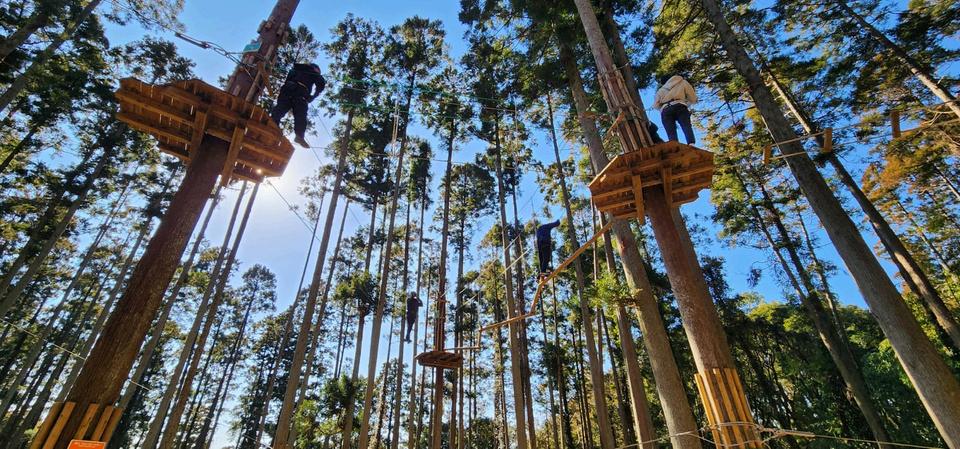


TERM 3 2024
B S T S T U D E N T M A G A Z I N E





I learned how to make eggs without burning them.
My friends made my happy every day I go to school.
Learning lots in all my classes.
I endeavored to enjoy every day of my last year at BST!
I am proud of settling into Secondary school very quickly and achieving gold in the 2nd term of the year I am really looking forward to the many years ahead in Secondary
Received an offer from Cambridge that I worked really hard for!

My highlight of the year was the 2 school trips because I was able to make new friends and learn new things!
I liked interacting with elderly people at the care home every Wednesday. It was a great highlight of my week!
I am proud, that I managed to get selected in the A team middle school football team even though I am a Year 7.
Miyazaki trip. I learnt a whole different culture within Japan.
I learnt so much and became independent in working in lessons.
I got accepted in an audition for the Royal Ballet School and the Royal Conservatoire of Scotland summer intensives.

Getting 'Best in school' in bebras.
My highlight of this academic year is joining the school musical. This is because I made a lot of new friends that enjoy the same things as me and it was just super fun being a part of the musical
Football tournament semi finals penalty shootout that we won
My highlight for 202324 is being able to reduces the number of flags I got every half term.
Thank you for all of your entries. Unfortunately, there wasn’t space for all of them as we received nearly 100! Hopefully next year will be equally as fulfilling!
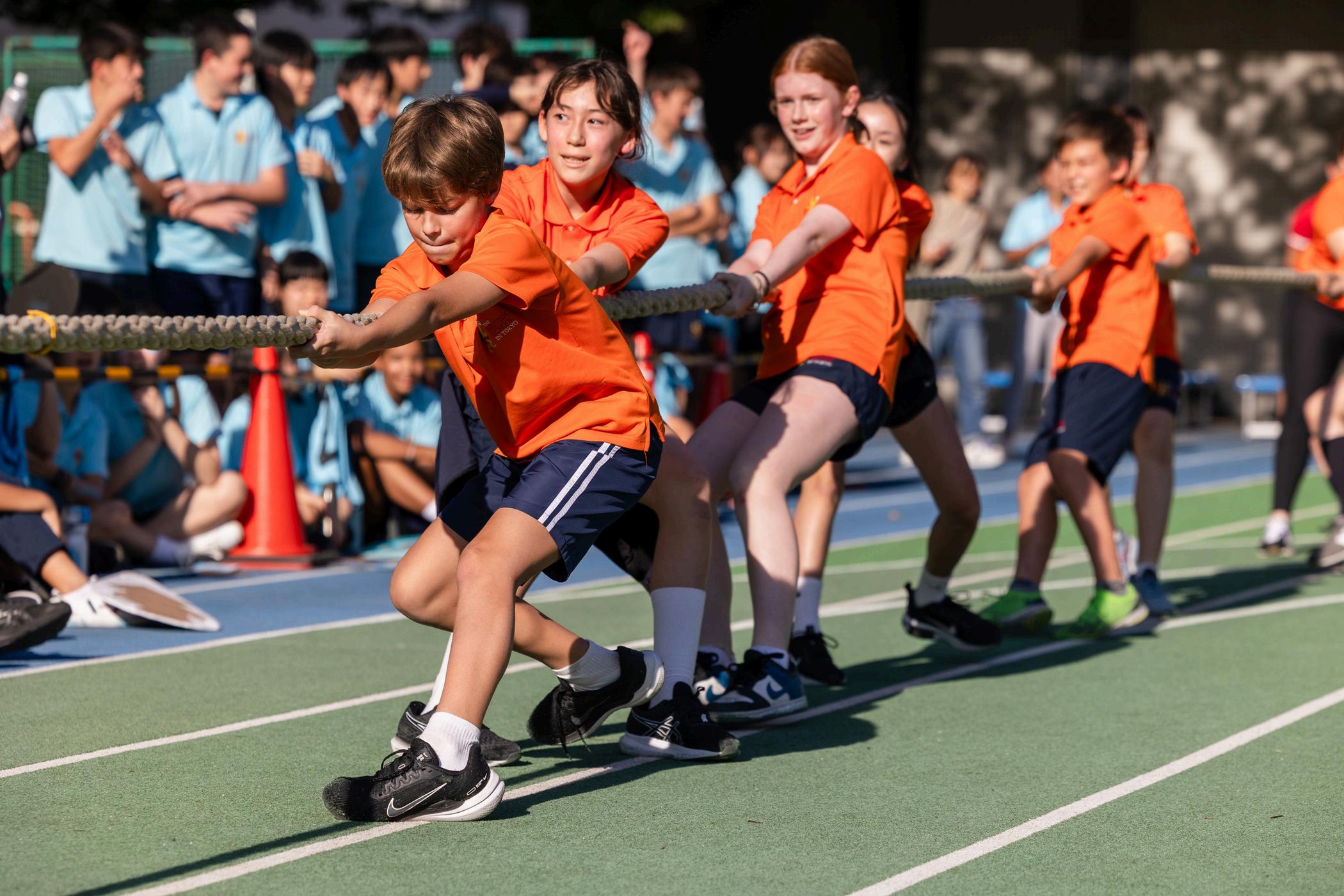

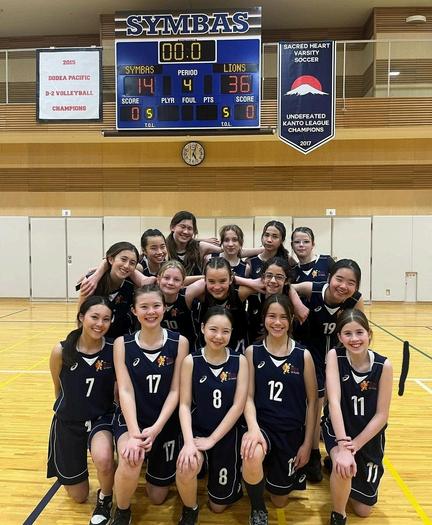
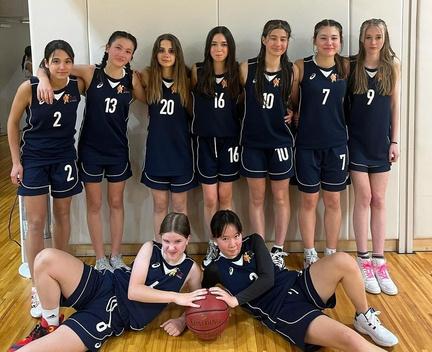
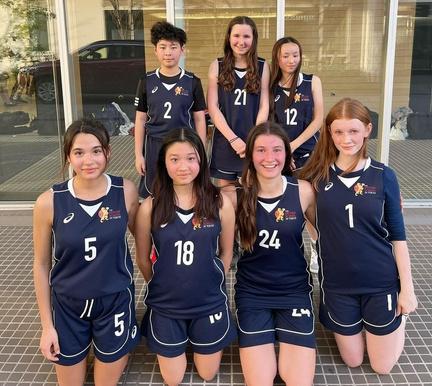
The middle school basketball season at BST this year was a journey filled with teamwork, determination, and unforgettable moments on the court. From intense practices to exciting games, every player poured their heart and soul into each match, pushing themselves to improve and support their teammates. Through victories and challenges, we bonded as one, learning valuable lessons about resilience and sportsmanship along the way. As the season comes to a close, we will celebrate our growth as athletes and cherish the memories made together on the court, knowing that the lessons learned would stay with us far beyond the final buzzer.
Milena Daggett

It had been a rollercoaster journey filled with victories, defeats, and unforgettable moments of teamwork and growth throughout this Volleyball season. Each player had poured their heart and soul into every serve, dig, and spike, forming bonds that transcended the court. As we gathered for one last time, reminiscing about our shared experiences, there was a sense of accomplishment and pride in how far we had come since the beginning of the season.
Despite any shortcomings, we had evolved not only as athletes but as individuals, learning the value of resilience, perseverance, and sportsmanship. As we dismissed the season, we carried with us memories that would last a lifetime, eager to embark on new challenges and adventures in the seasons to come.
Connie McCann
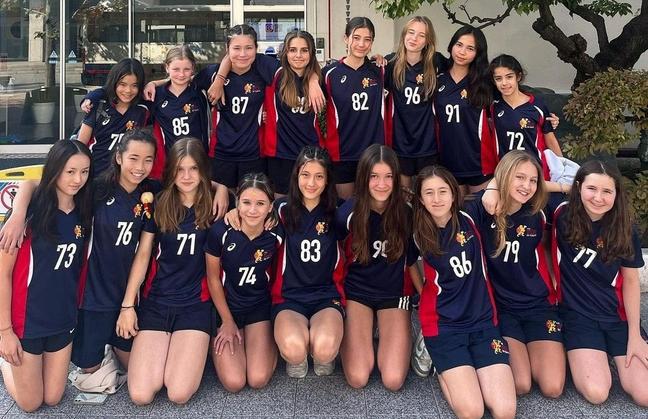
The middle school football season was an exciting unforgettable season, the team poured hard work, determination and resilience to each and every game. We placed second in the tournament, and played against every opponent with pride. We had big wins and tight wins, and even had a penalty shootout, which was one to remember. As a member of the middle school football team I enjoyed each and every moment with my team.
Shizuku Low
This year’s MS boys football season was a great experience. The highlight of the year would have to be the final game of the season against TIS. Despite going behind in the first half, we were able to persevere through as a team and bring the game back to level late on. However, in the final minutes of the game we scored twice, sealing the win and a place in the tournament. The resilience of the team could really be seen through everyone’s joy after the game. Although, we fell short of the trophy during football season, the futsal season is currently happening and hopefully this time, the team can do even better and ultimately win the tournament.

Taiga Tamura Lewis
Term 2 gave us quite the unique opportunity. Through FOBISIA, BST enrolled in an E-Sports tourney run by DAIGON, a company that facilitates international E-Sports competitions between schools. It was split into two competitions, a Rocket League and a Minecraft one, with us managing to garner enough players for 2 Minecraft teams (one composed of older students and another of younger ones).

The Minecraft teams had great showings up until the finals which were hosted against schools around the world, which led to a myriad of issues. For one, all of the other schools were hundreds of kilometres around the world, leading to very intense latency and lag. Additionally, some of the players were beginning to feel the strain of a long and uninterrupted gaming session at 10pm. One team was knocked out in the Semi-finals, the other in the Final. While we may have not won in the end, I’m sure all of the participants would agree that it was still a great experience and a lot of fun, it could even be something we develop more next year.
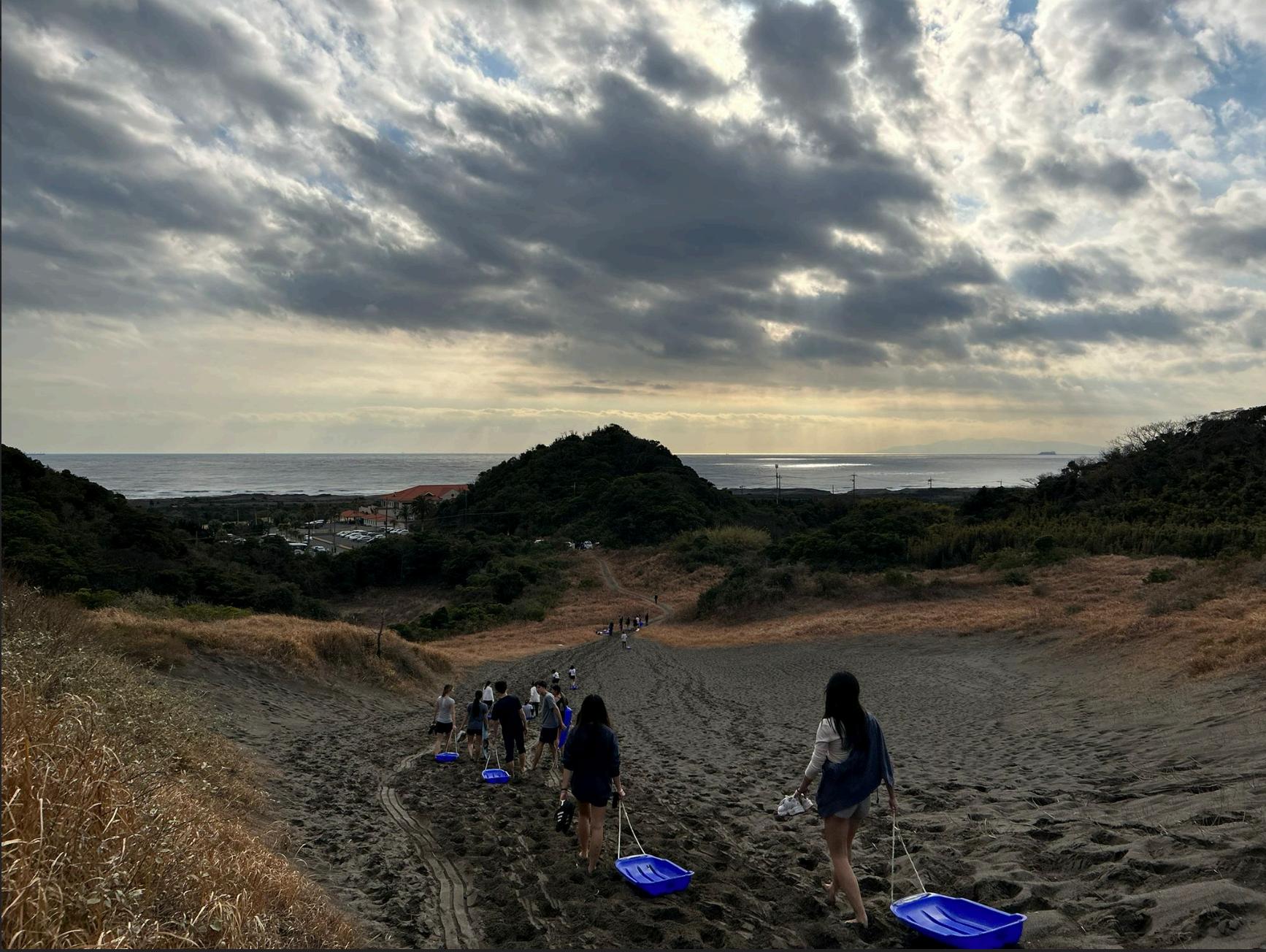

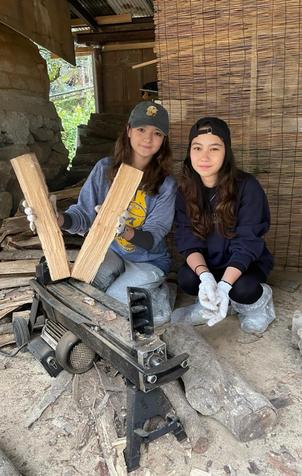
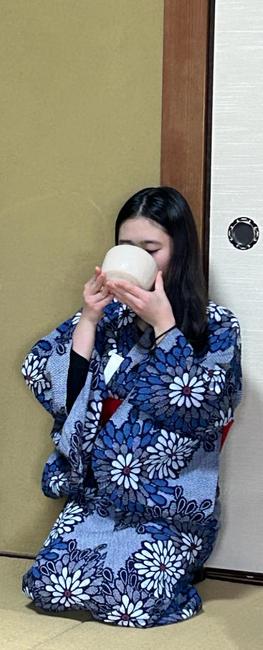


Year 10 finally visited Saito City in Miyazaki Prefecture after many years of cancellations due to the Covid-19 pandemic. The students stayed with host families for approximately three nights, where they immersed themselves in the local culture through activities such as tea ceremonies and farming. Despite initial anxiety about staying with unfamiliar people, the students quickly formed strong bonds with their hosts and felt like part of the family in just a few days.




The GCSE and A-level Art Shows at Temple University showcased an impressive array of student artworks, highlighting their creativity and technical skills. Visitors were treated to a diverse collection of paintings, sculptures, and multimedia pieces that reflected the students' unique perspectives and artistic growth. The event provided an excellent opportunity for young artists to gain recognition and for the community to engage with fresh and inspiring artistic talent.

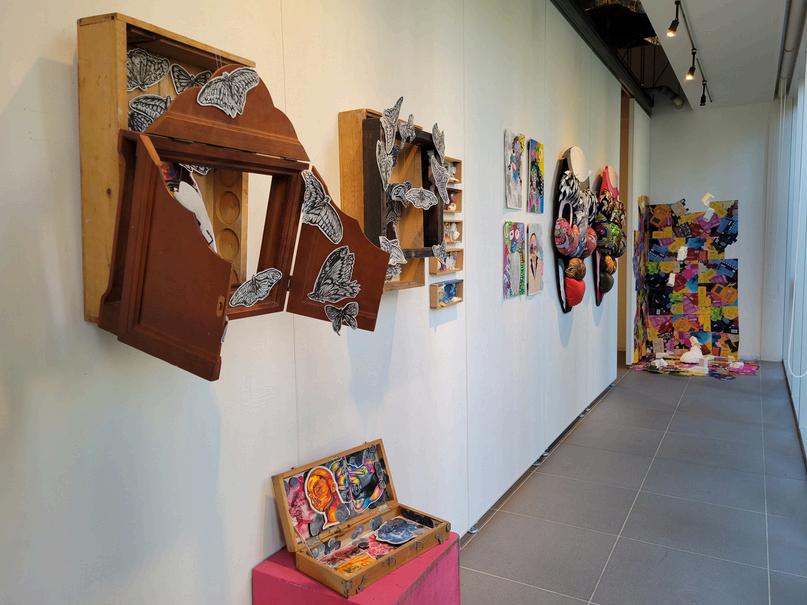

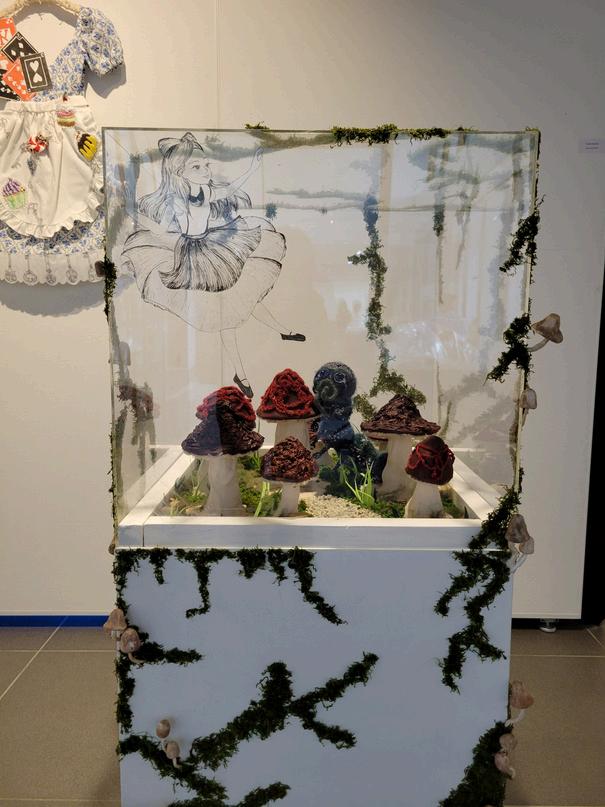
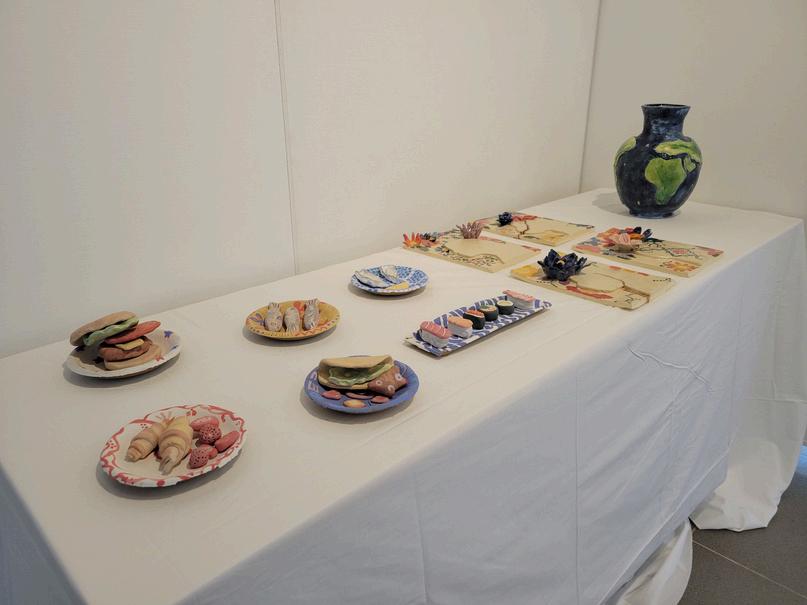
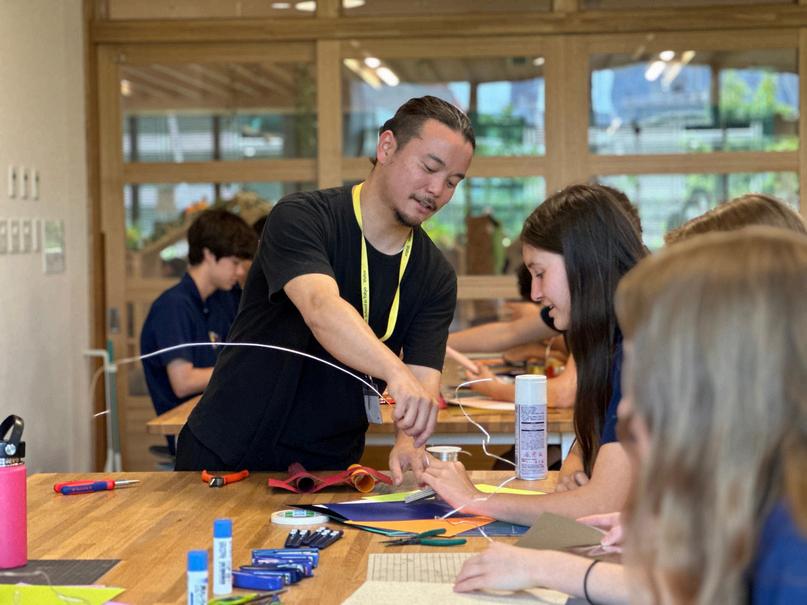
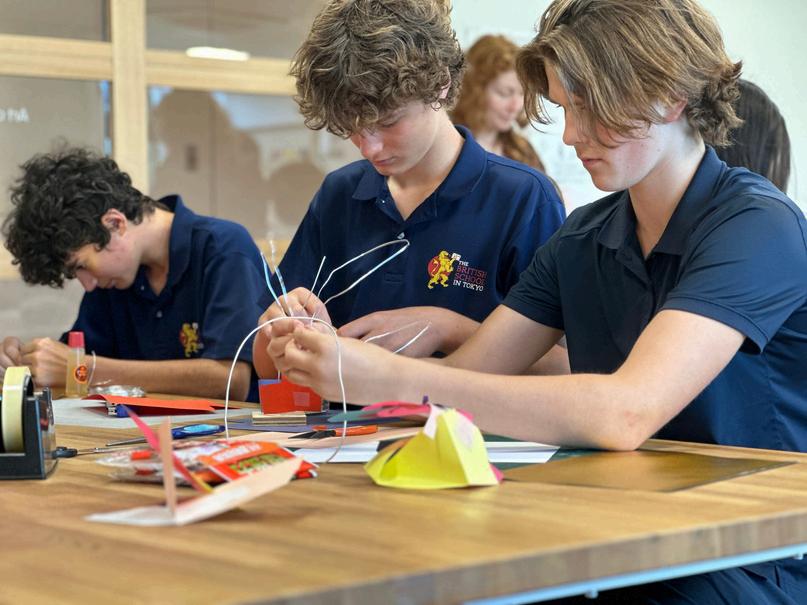
This month, Year 9 students engaged in a hands-on workshop inspired by Alexander Calder, exploring the art of creating kinetic sculptures and mobiles. They learned about Calder's innovative use of movement and balance, translating these principles into their own creative projects. The workshop not only enhanced their understanding of modern art but also fostered collaboration and critical thinking skills.
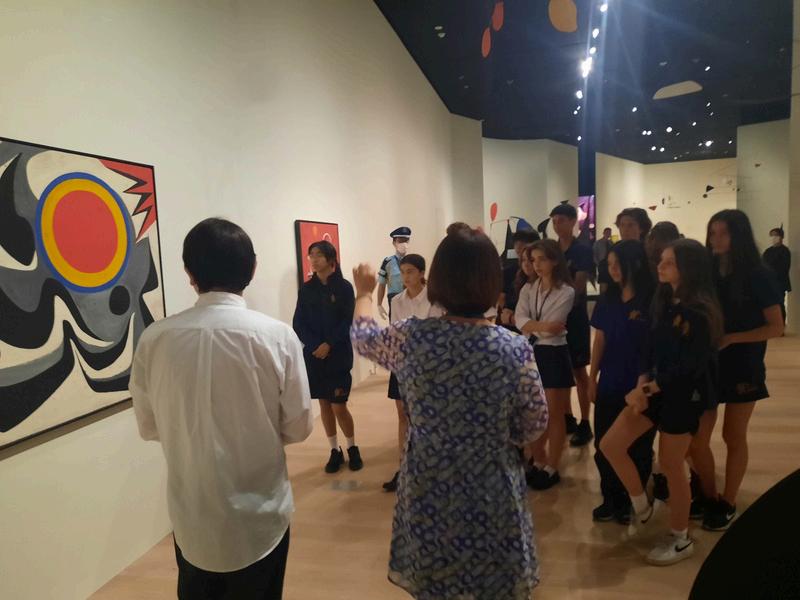
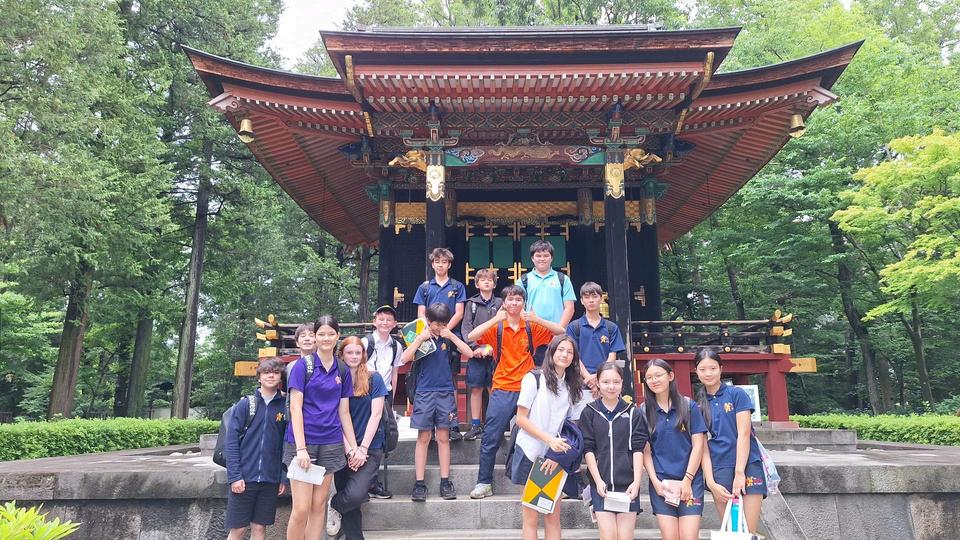
A trip to the Edo-Tokyo Open-Air Architectural Museum with Year 8 students provided a unique hands-on experience to explore historical architecture. Students were captivated by the meticulously preserved buildings, which offered insights into Japan's rich cultural heritage and architectural evolution. This immersive excursion allowed them to connect classroom learning with real-world examples, deepening their understanding of History and Art.
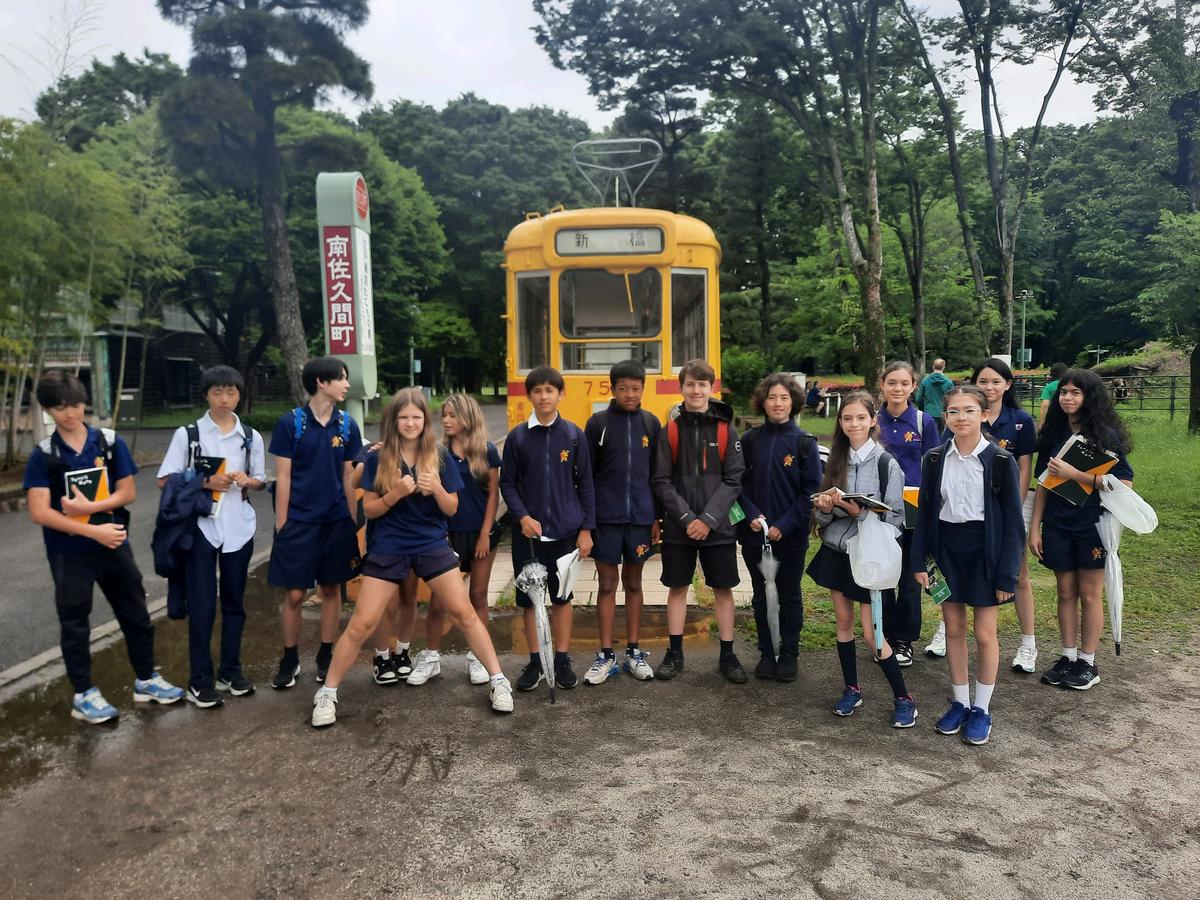
M O D E R N
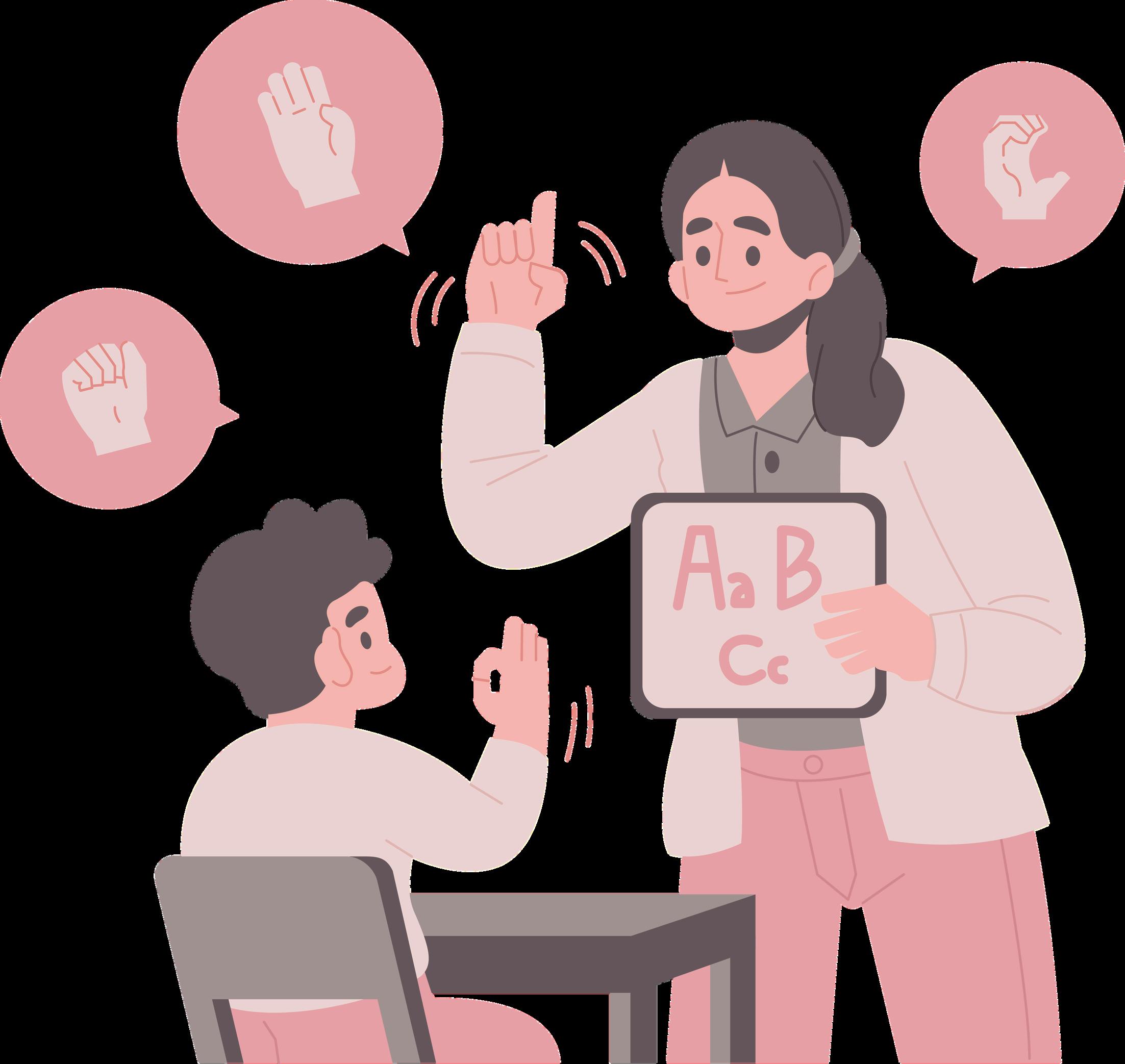

This term has been another incredibly busy term in the Languages department. Our exam class students started the term (or ended the Easter term) with their final speaking assessments for (I)GCSE and A Level and we wish them all the best for another excellent set of results in the summer.
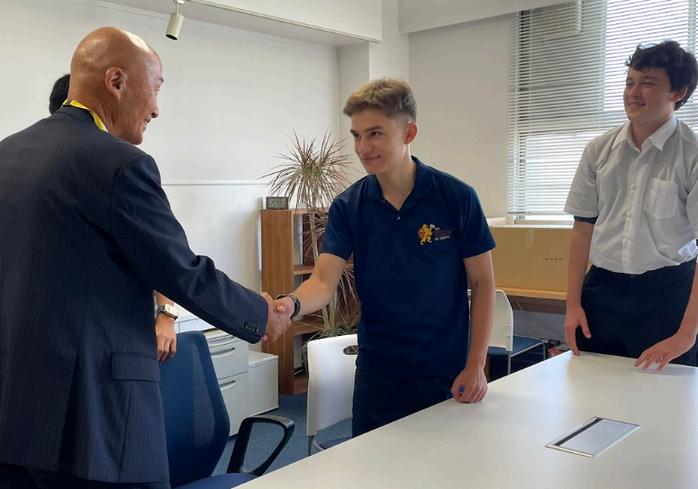
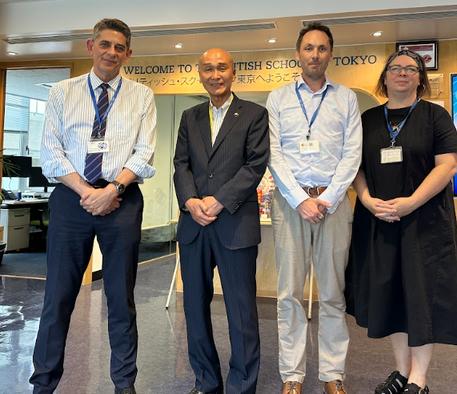
Taking advantage of our position at the heart of Tokyo, the Japanese team has been very busy organising events to celebrate Japanese arts and culture as part of the BST Festival of the Arts.
We were also delighted to welcome a visit to BST recently from Mayor Hashida from Saito City in Miyazaki. Our Year 10 students took part in a homestay experience in Saito as part of the winter residential and the boys who stayed with Mayor Hashida were delighted to see him again. It was wonderful to see the return of the Miyazaki trip this year after a four year hiatus due to the pandemic.
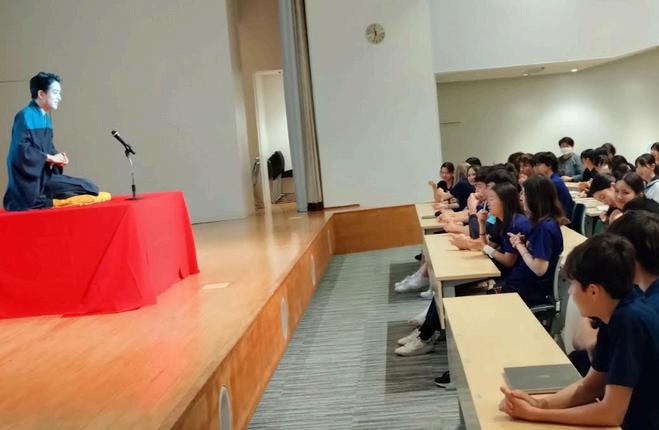
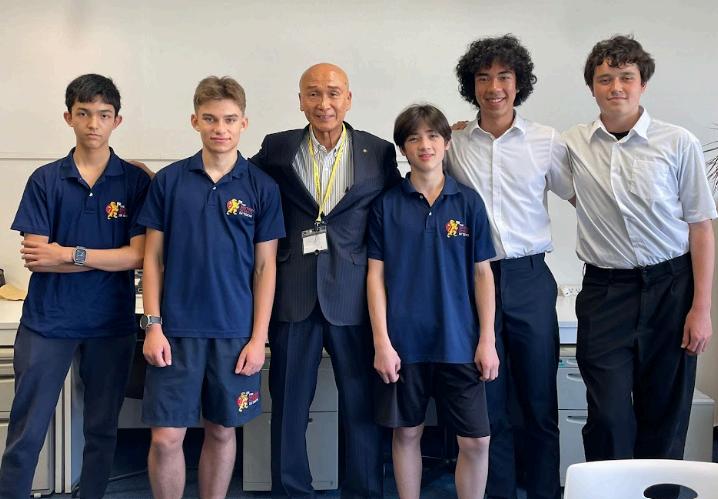
Also, Year 7 students at the end of term are busy deciding on their languages pathways for next year, having just received their report. Many students have been learning French and Spanish, and some also Japanese, for the first time and their progress this year has been excellent.
In addition, Year 9 students have had the chance to be involved in a curricular project with Geography looking at tourism, with students in their French and Spanish classes carrying out inquiry projects looking at examples of the impact of tourism within the French and Spanish speaking worlds.


n you tell who they are?
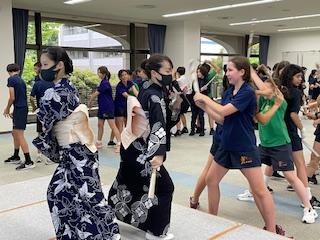
On 14 June, BST invited two professional kabuki performers as part of the BST Festival of the Arts. Y7, Y8 and Y10 students had the fantastic opportunity to see and experience different forms and types of traditional kabuki dancing. Some students even had the opportunity to try the full kabuki make-up!
The venue was filled with energy and joy. The professional Nichibu dancers performed to the beautiful music, ‘Sakura’. The students were very impressed with their delicate and perfect movements.


Rakugo is a 400-year-old tradition of comic storytelling in Japan. A minimalistic performance art, Rakugo features a lone storyteller dressed in kimono, kneeling on a cushion, who, using only a fan and a hand towel for props, entertains the audience with a comic monologue followed by a traditional story.
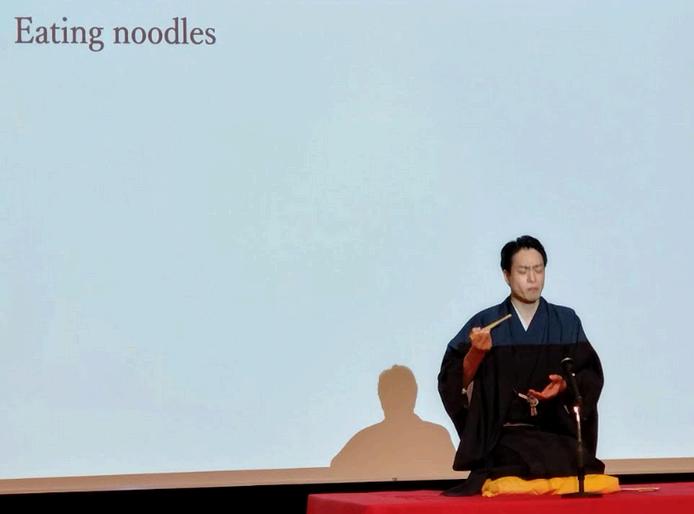
On June 20th, we had a professional rakugo performer, Shoyo Shunputei, visit us at BST to perform for our students. It was such a great opportunity to see an authentic rakugo performance, and we were also able to be joined by students from Showa High School for one of the performances.
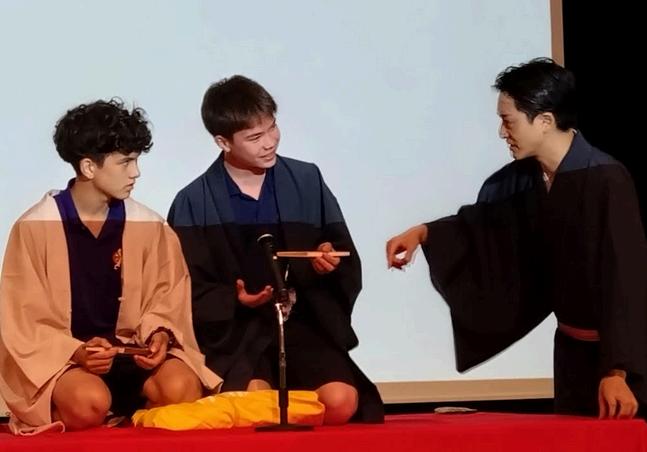

The students were very impressed with how Rakugo performers express various things using only a fan and a handkerchief. They also practised how to eat soba and udon during the Rakugo performance, including learning that it is ok to make noises when eating soba in Japan. The Green Hall was filled with laughter.
Now Shoyo Shunputei is about to tour some European cities with his Rakugo show - I am sure that doing four performances back to back for our students will have been useful practice for him.

BST has been working with Showa Junior and Senior High schools and Setagaya Gakuen to enrich our school life. BST is in a fortunate position to share the campus with Showa schools, and is located 10 minutes’ walk from Setagaya Gakuen.
For example in cultural exchanges, we had fantastic Calligraphy, tea ceremony and Ikebana workshops. Here students had a chance to learn bilingually about Japanese and global cultures.

Through our wide and varied exchanges, events and projects with our partners, we have enriched and enhanced the educational experience of BST students.
In March, Showa and Setagaya students visited BST for three days and experienced the BST school life. In return, 7 Year 10 girls have visited Showa High School and 6 Year 9 boys have visited Setagaya Gakuen in June for 3 days to experience Japanese school life.

The curriculum differences were the most eye-opening aspect for me, as Showa offered a variety of subjects not available at BST. For example, they had a social studies lesson covering politics, law, races/religion, and economics, which I found extremely interesting. Additionally, their curriculum included unique subjects like information technology, health, home economics, and classical Japanese literature. While many topics at Showa overlapped with those at BST, they were explored in greater depth.

I learned the different values each school prioritises and how they convey them. For instance, unlike BST, Showa does not enforce strict rules regarding device usage but places significant emphasis on uniform standards. Before lunch, all students are required to wash their hands, reflecting a strong commitment to hygiene.
The looseness of the school, as in, in between lessons, and at lunch, there weren't any teachers around, but at school, there is always a teacher supervisor. (Also the fact Setagaya is an all boys school).
I have realised how difficult it is to explain something that you do not know in another language
The difference was how classes were done (stayed in the same classroom, more time between each lesson), no going outside for lunch, students are allowed to use vending machines for drinks and snacks.


This year, the Library Ambassador Team has had a fantastic year. We had numerous collaborations with other schools, participated in many fun teamwork activities, and tried our best to make the library a better place for all students. On behalf of the team, we think that becoming a library ambassador was a great opportunity to volunteer, and meet new people.
Every week, we attend the library twice to help out with small jobs. Sometimes this means zapping in books, recommending books to people, creating posters, helping to set up for library concerts and more. The environment is very easygoing, and not a lot of work is needed. We also think that being library ambassadors has given us valuable time to become friends with other year groups, as we have hosted multiple meetings where we could talk together. We have been very thankful that we could have this role, as it was enjoyable, and helped us socialise.

As well as this, in the past year the Library team has contributed to a series of incredible events such as hosting the Student Library Council Conference at BST, with Yokohama International School and St Mary’s both attending. We also organised Book Week activities,led the Inter House Charity Book Sale, and hosted the Festival of the Arts which was a massive success for BST with many incredible arts professionals leading activities and workshops with BST. During May the library team went to the new Azabudai Hills campus to educate Years 1 to 6 about the United World Schools charity and to read books to encourage their enjoyment of reading. This was a great success!
For the library team, we have had a hugely successful year and we have all learnt a lot of important life skills and have had incredible opportunities by being library ambassadors. We have all worked as a team; have had creative freedom; learnt so many skills and had an enjoyable time all thanks to Mrs Grey for leading the team and organising so many events and activities.
Ultimately, we would recommend this role to anyone who would like to have a chance to meet new people, or even just help out with your friends. The student library communities in other schools are also incredibly kind and welcoming. It is a great opportunity simply to volunteer and be one step further to making our school as great as it can be.


This term, several BST students had the amazing opportunity to work with “Under the Madness” magazine to publish short stories reflecting our perspectives on Japan. These pieces ranged from poems, mysteries and tales of onsens, creating a diverse collection that promises to inspire and entertain readers globally. To reach this stage, all twelve students participated in multiple writing workshops hosted by Melissa Uchiyama, a writing teacher at Tokyo Kids write.
During the first workshop, we explored various writing techniques and reflected on our experiences in Japan. Readers typically expect to hear about sakura, the bustling streets of Shibuya, and perhaps traditional practices or cuisines. However, many BST students aspired to present a more authentic view of living in Japan, beyond the usual stereotypes. Melissa taught us to articulate our words effectively, by focusing on sensory detail to really engage the di


The second workshop focused on refining our writing for publication. Melissa provided individual feedback, helping us overcome challenges such as writer’s block and the stress of deadlines.Ultimately, everyone achieved fantastic results. It was fascinating to discover the unique perspectives each student brought to their stories, revealing their personalities and interests. With Japan being a country of rich distinct cultures that vary depending on the area, everyone had different tales and differences to share. We also had an interview session with the editors from the magazine, where we discussed our passion for writing and our experiences as bilingual individuals living in Japan. Hearing my peers share their insights into the English language deepened my resp shape and
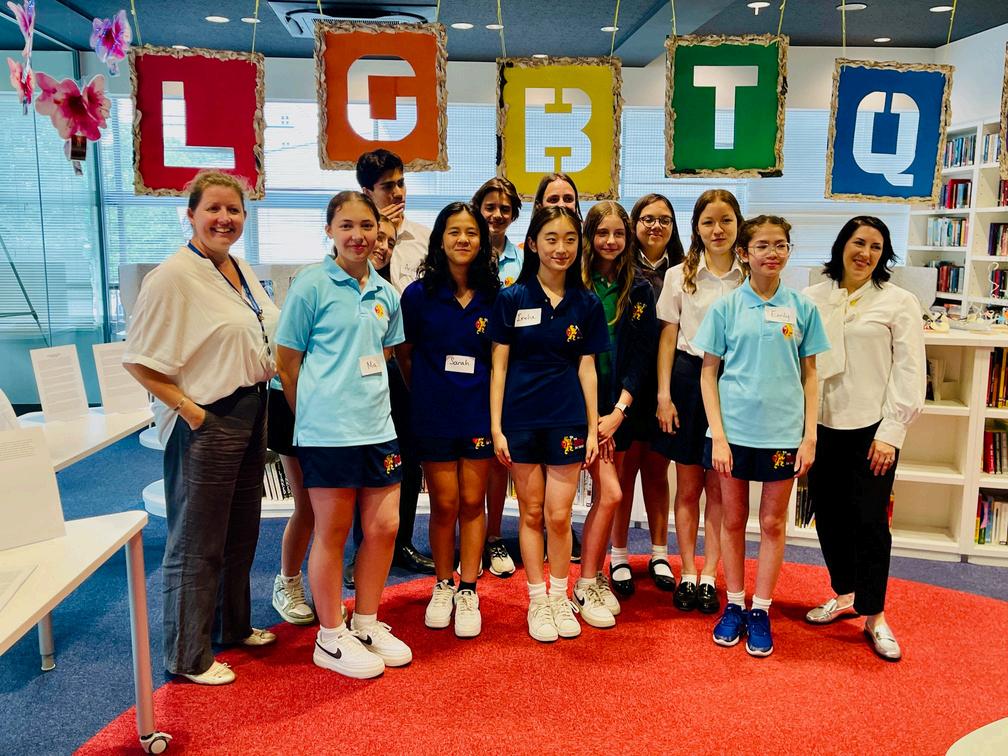
Writ me— and rewarding accomplishment, but the process of learning to express our thoughts vividly and using diverse descriptive language was invaluable. Additionally, while I have thought about the uniqueness of being a multicultural student, getting the chance to sit down and really think about what makes Japan special from the eyes of an international student enhanced my appreciation towards the country we live in. I hope all participants, and even those who simply enjoy writing, will continue to pursue their aspirations and reach a wider audience through their work.
Finally, thank you to Mellissa Uchiyama for supporting us with our writing, editors of “Under the Madness” magazine for publishing our stories and Mrs Grey for organising everything.


Over the past few months, a number of students from Years 8-10 took part in an exciting opportunity: to be officially published in an American magazine aimed at showcasing young people’s writing from across the world. They spent weeks planning, workshopping, writing, and finally editting thier pieces ready to grace the digital pages of ‘Under the Madness’ magazine.
Go here to read the varied and evocative selection of their works!





The BST Festival of the Arts allowed all BST students to take part in many activities ranging from poetry workshops with the Waterstones Children's Laureate, Joseph Coelho, to ‘Drawing as Stimming’ workshops with award-winning neurodivergent artist, Sam Metz. These sessions and workshops were a way for BST students like myself to enjoy Japanese culture as well as other countries' cultures and to try new things such as drawing zombies with Charlie Adlard and Sean Phillips. All of the activities were really inclusive and were all really fun. There was a lot to learn, whether from actively taking part in a workshop or just listening and watching the experts!
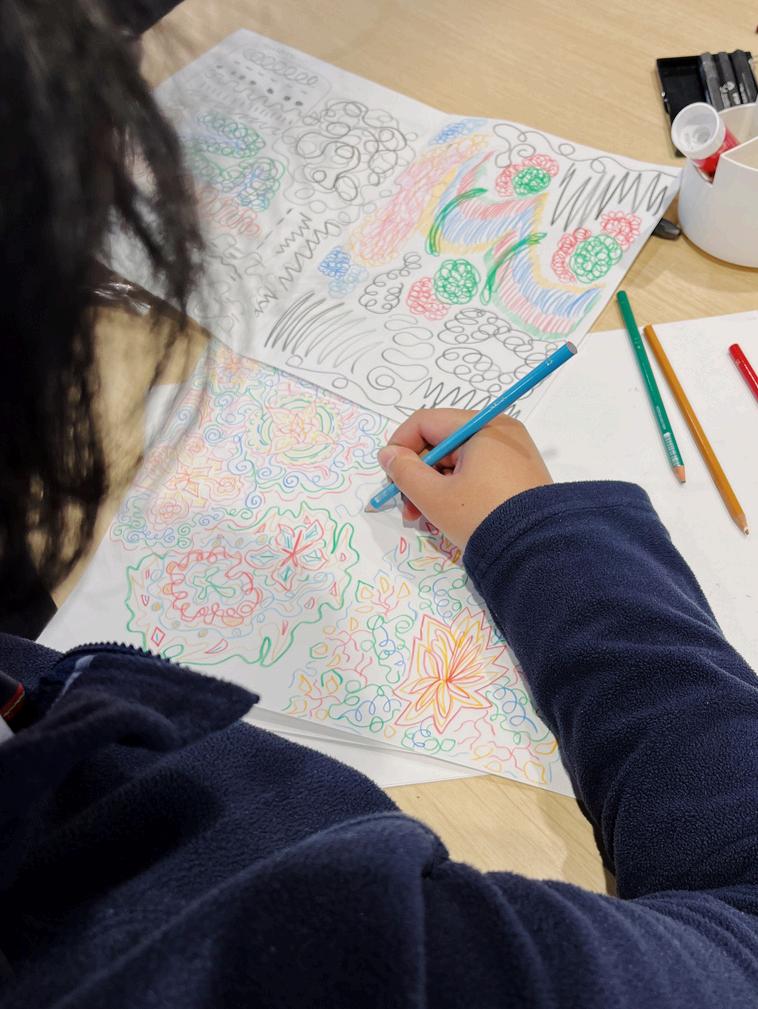
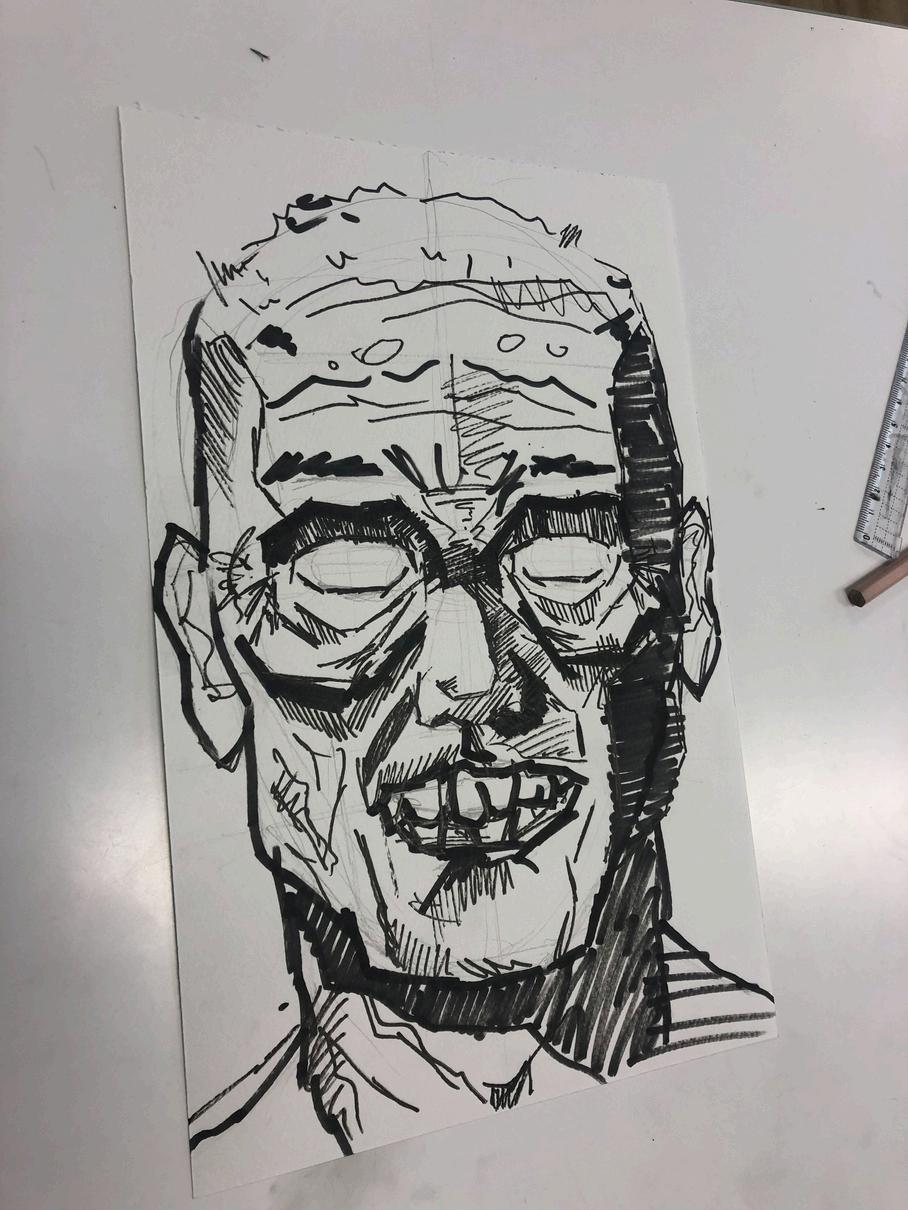
My favourite part of the festival so far was the Nichibu workshop we did with Annla Utsugi. She is a researcher and professor of Nichibu and traditional Japanese culture. She is also a Fujima style master. We got to watch a live performance by her and we got to try doing it ourselves. Another session that all students from Year 7 to Year 10 got to take part in, was the Rakugo session with Shoyu Shunputei. He had a very good sense of humour and everyone got to participate and have a go at miming eating soba or udon. Some people even got to perform in front of the whole school. We also did the workshop with students from Showa High school and it was really interesting to see how differently everyone reacted to the jokes and punchlines said onstage by Shoyu Shunputei.
The BST Summer concert was absolutely amazing with many students and teachers taking part. Family and friends could all come and watch it and all the performances were amazing! The year 9’s went on a trip to Azabudai Hills Gallery to look at the exhibition created by Alexander Calder. They all got to make their own pieces of art, which are now being shown in the BST Showa Library. The Year 11s, 12s and GCSE students were able to take part in a Corporeal Mime Workshop with the drama company Tarinainanika and I’m sure it was a once in a lifetime opportunity.
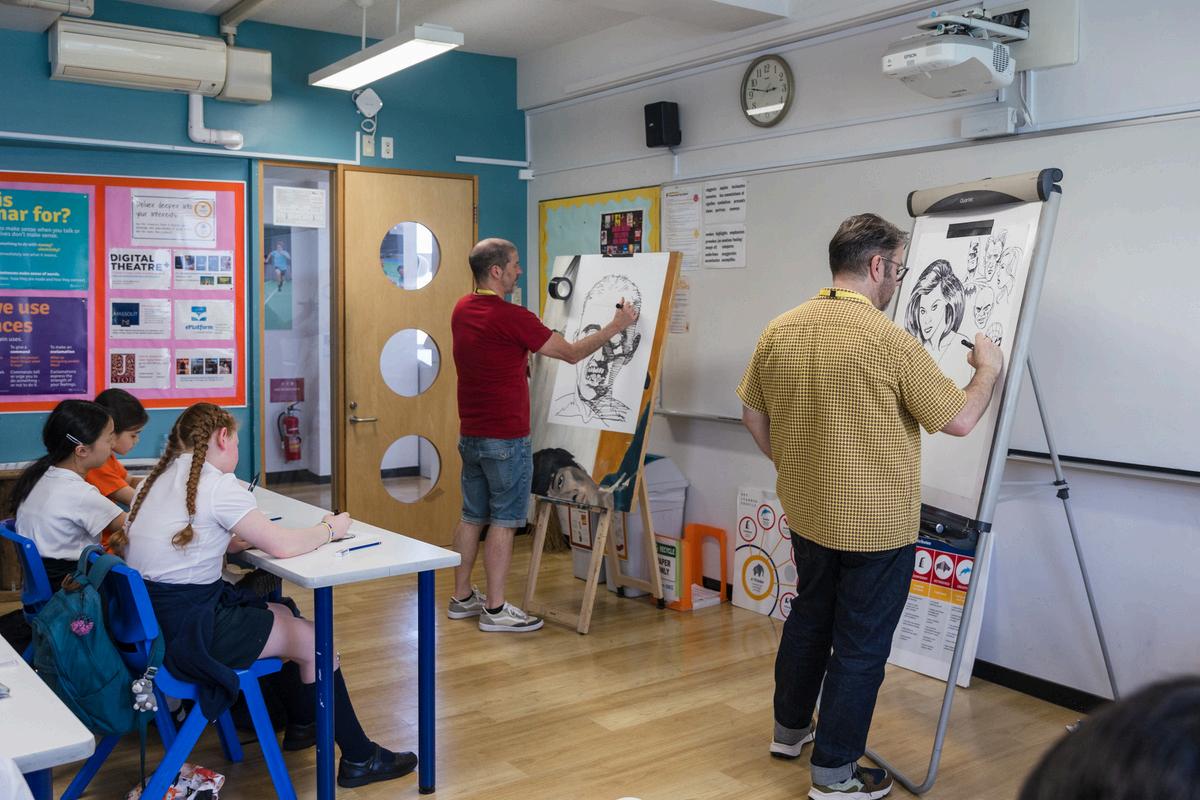
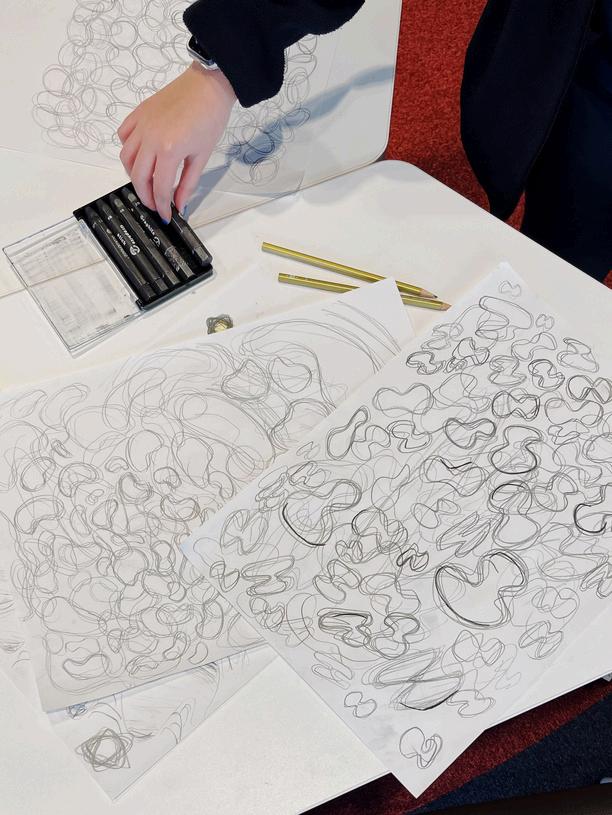
Many parents as well as staff were able to take part in many of these workshops and sessions. One of these includes ‘Glory’s Aftermath: Translating Bashō' with Andrew Fitzsimons. He discussed his recent book Basho: The Complete Haiku of Matsuo Basho. It was open to teachers and parents and many came along! Another session where parents and staff were able to attend was the Sam Metz ‘Drawing as stimming’ workshop. She creates work in non-verbal ways that begin and end in movement and embodied interactions without recourse to traditionally privileged verbal and written forms of communication. It was a really fun opportunity and I hope everyone enjoyed it!


Overall, the BST Festival of the Arts was a great success and so many people got involved in lots of the activities provided. Without the festival, there is no real way to celebrate the arts around us and it is really good to enrich ourselves in the 4 arts. Additionally, the Festival of the Arts is a way to learn things we may not have known and try things slightly out of our comfort zone and to challenge ourselves in doing things we may not have normally done. I think everyone in BST, students and staff, have all enjoyed the Festival and I hope you can say the same.
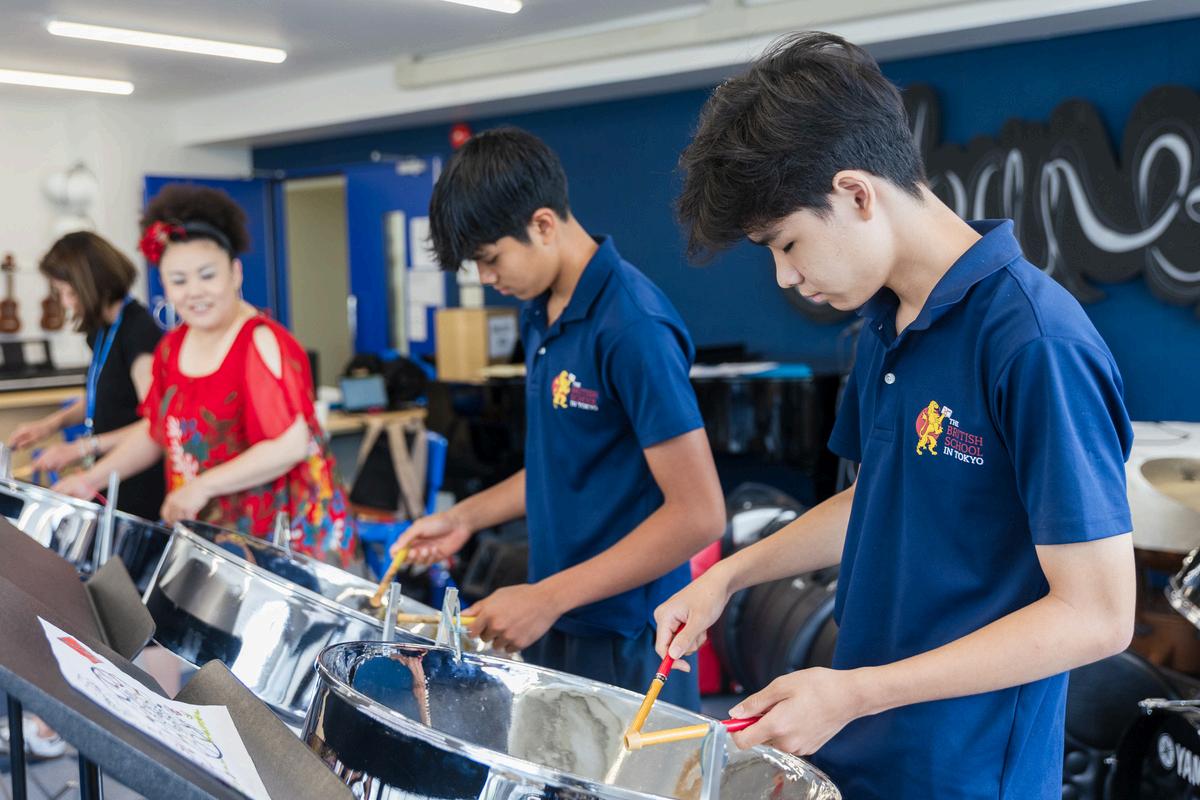

This year, the variety of books has been truly excellent with a book for everyone no matter if they feel more confident with older books or Japanese books.
The most popular books in the Showa Library appeared to be The Hatmakers by Tamzin Merchant, Ghostlight by Kenneth Oppal and Alone by Megan Freeman. All of these books have some form of suspense and sadness in them but the way they were written is beyond astonishing. One of our favourites was Ghostlight, which uses dual narrative to jump between times from the present to the past and they connect through two characters called Gabe and Rebecca.

The Middle School Sakura book voted most popular by the international schools of Tokyo, was Alone by Megan Freeman. This book is written in free verse and is about a girl who is stranded and alone in a town which has been mysteriously evacuated and abandoned. Throughout the books she tries to survive and find out why everyone evacuated.
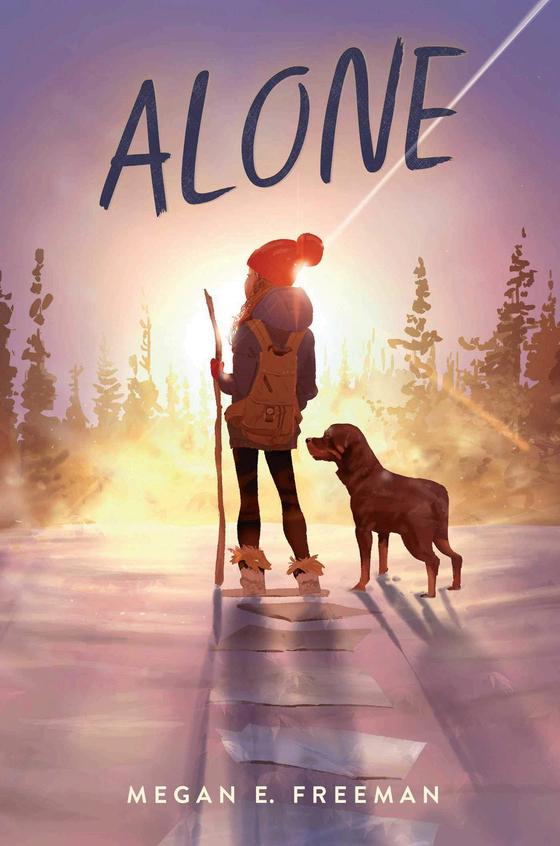
The High School Sakura winner
Anatomy: A Love Story by Dana Schwartz. A story about a lady called Hazel Sinnett who wants to be a surgeon even if it means practising on dead people. Later in the book she meets Jack Currer who is a resurrection man and just tries to survive in a city where it’s too easy to die.


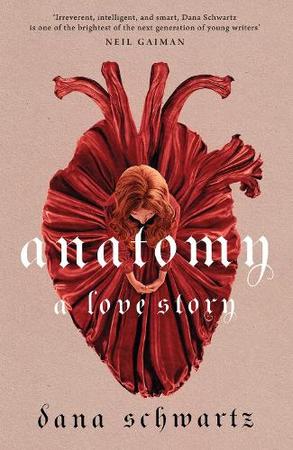
The book that won in the MS/HS Japanese Sakura category was called, “ 瞬を⽣きる君 を、僕は永遠に忘れない。 ” by 冬野夜空. This book tells the story of a boy called Nayuki who lost a loved one in a plane crash and was suffering with regret and guilt. He is saved by the presence of his neighbour Kotoriyu, and eventually regains hope, but just then he loses his memory due to an accident. Even so, Nayuki stands by his side and supports him. However, an event that seems like punishment from the past attacks her, and she is transported back in time to the crash.
With the Sakura Medal 2025 shortlists already finding their way to the Library shelves, make sure you get an earlier start with your reading over the holidays. Remember, reading 3 books = 1 vote, and each vote gets you a House Point and a chance for your English class to win the trophy and bonus prize!
Matilda Grey (T1) and Sofia Raviscioni (I2)



During the literature and Arts Festival, Paul Hullah, a professor of British poetry at Meiji University, came to speak to students about Haiku. Haiku is a Japanese poem of three lines which are 5,7 and 5 syllables long. During the session, we had to write about something close to us, whether that was a family member, a pet or an object. During the writing process, many faced challenges in having to choose the written word to express their thoughts as the haiku is extremely short. Paul used a haiku to describe this, saying “To express oneself / in 17 syllables / is very diffic”. This shed light on the importance of choosing words carefully and how certain vocabulary can be extremely powerful. I learned how words don’t need to be sophisticated in order to sound beautiful and intelligent. In addition to the hands-on writing exercise, Paul Hullah shared his experiences as a poet and emphasised the profound importance of language. I had never met an individual who spoke so passionately about English, and I could tell his deep desire to teach others about its beauty. He discussed the essence of writing poetry and celebrated language as humanity’s greatest invention. The workshop was truly inspiring.
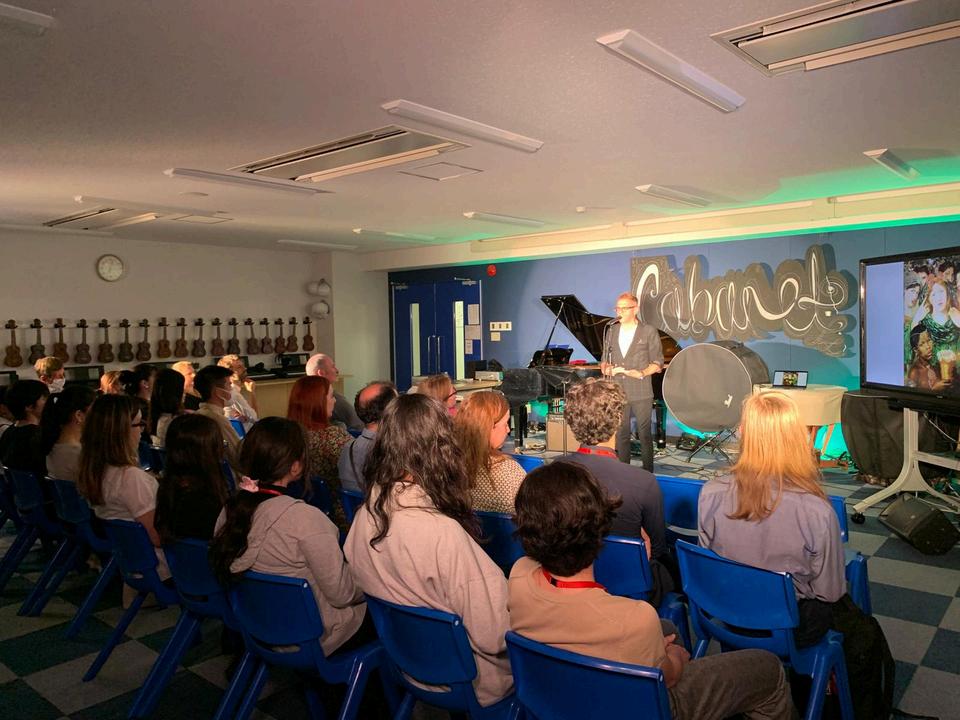

We also had the pleasure of welcoming the theatre arts company tarinainanika, who conducted a workshop for the Year 9 and 10 Drama GCSE students on movement and stage usage. Ken and Tanya introduced us to corporeal mime, a drama form that emphasises using the entire body to tell a story. They guided us through creating a performance piece from scratch, starting with a stimulus, moving to mind mapping, and then improvising. They stressed the importance of action over contemplation, emphasising that “doing” is the most effective way to develop a piece rather than overthinking and discussing ideas endlessly. They also emphasised the critical role of body language in conveying emotions. This perspective contrasted with the focus of many literature workshops, which highlighted language and dialogue.
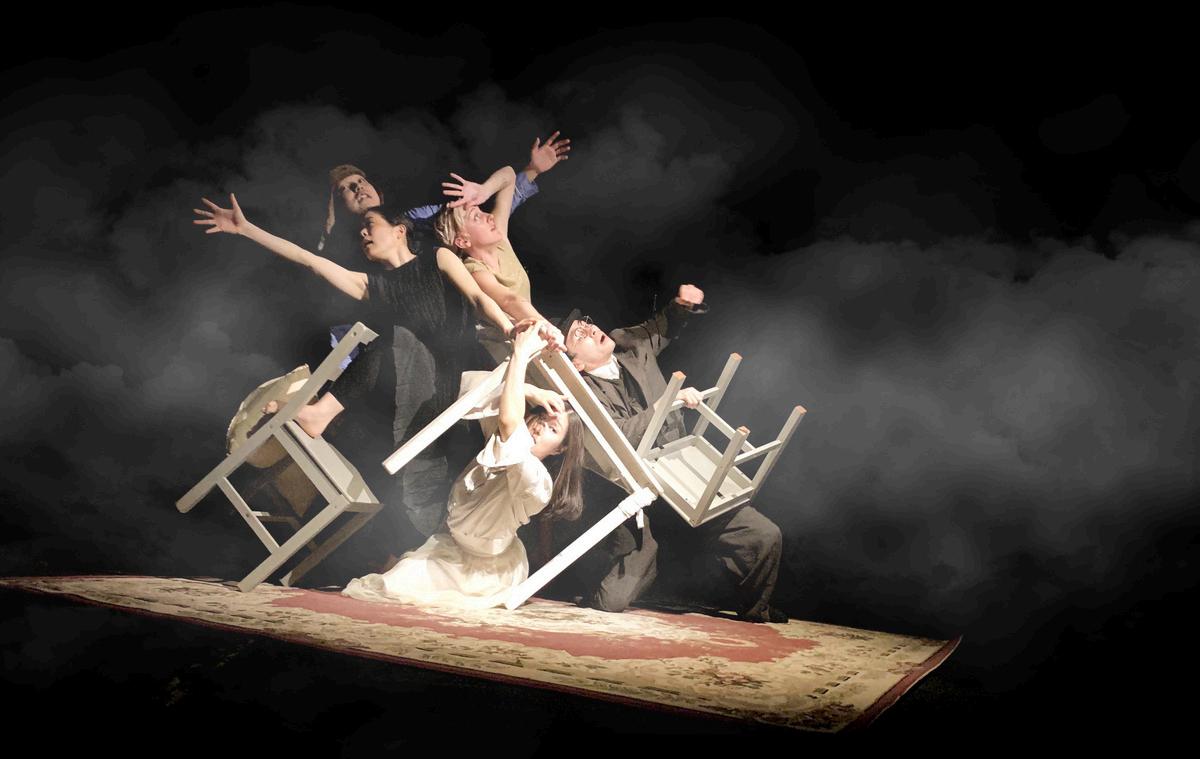
Their insights offered us a fresh understanding of how there are different artistic forms to communicate, showcasing the diverse mediums through which emotions and stories can be expressed.After forming groups and selecting our own stimuli, we brainstormed related words to explore various aspects of our chosen themes. The three groups chose religion, COVID, and sleep, and each team interpreted and presented these themes uniquely. We focused on effectively utilising the space and crafted movements based on our keywords to convey a story. The workshop was invaluable for us drama students, as devising a piece is a critical and challenging component of our exam.
ENGLISH ENGLISH


Raise my confidence and put me together
Lift me as high as the sky no matter what the weather
For 3 years it is all you do, raise me high
But after that my old self will say goodbye
Now it is time for me to fall to the ground
Take me apart bit by bit, make me end up with a wound
One string at a time
Only one string at a time
Tug on it and make it snap
I just stand looking like I just got a slap
One by one you demoralise me
But then build me up and make me free
I got over it, no more of that I say
But now there is something else to knock me off balance
To make me detach from the world in a trance
A flying rock on this day
Swinging full power my way
It knocks me down and I hit rock bottom
Well that’s just awesome I hike up the mountain
I fall but keep trying I fail but keep trying
I keep trying until I am free once more
And if I fall from the top, too bad
I will keep going again and again and again
Until I am free once again
That is what makes me who I am
The process of trial and error, what a scam
It’s not sugar and spice it’s wounds and scratches, Broken bones and shed blood and all the rough patches
by Mia Noguchi, Year 7




Ah, the swinging 60s, where everything was as stable as an earthquake. Extreme cultural division, major political assassinations, and the closest the world has ever come to nuclear apocalypse – just your average Tuesday afternoon. Shocked by the CIA's intrusive methods for putting down socialism in Latin America, a certain Fidel Castro and Che Guevara walk into a bar in Mexico City, probably arguing over who has the better beard.(I swear they had nice beards). Anyway, next thing you know, they're plotting to overthrow the Cuban government. Which is exactly what they did.

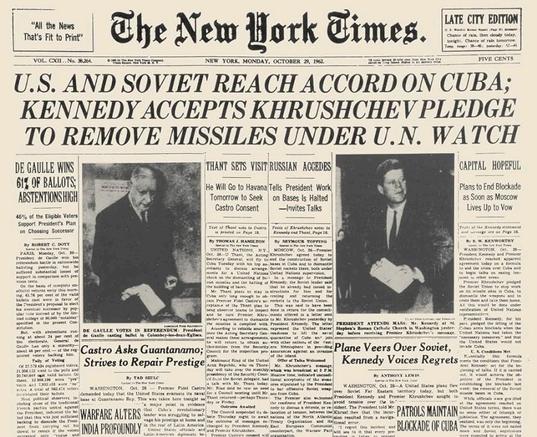
Kennedy’s problem during the Cuban missile crisis was Cuba had been America's personal summer holiday spot, so obviously you can imagine that the US didn't like seeing a communist regime being set up in its own backyard, so the US instantly began training up Cuban exiles to invade Cuba and overthrow Castro. But, as the day of the operation came closer, Kennedy didn’t want anyone to know about the US involvement in the plan, so he greatly scaled back American air support, and because of that, the Bay of Pigs Invasion was a humiliating defeat for the US... But Castro felt there was still an impending US threat to his regime.

Meanwhile, in the Soviet Union, Khrushchev (What a hard name to spell) had a lot of medium-range nuclear missiles that couldn't reach America, but they could if they wereplaced, let's say, on an exotic Caribbean island off the coast of Florida (Did you get it? Cuba). So presumably, Khrushchev thought, "Why not make a deal with Castro? We'll get to stick it to the Americans and secure our strategic interests at the same time." And with that, the Cuban Missile Crisis got under way.The Soviet Union began smuggling nuclear missiles into Cuba under the pretence of building supplies. Nonetheless secrets never last forever and panic ensued at the White House upon learning of this from American intelligence.

The two sides stood on the brink of nuclear war ,even drawing plans of invading Cuba! But fortunately Khrushchev gave in six days later and the missiles were dismantled. In return, Kennedy disbanded its own missile sites in Turkey. Diplomacy was able to prevent the immediate threat of nuclear war, but both the US and the Soviet Union realised that further communication and deescalation measures were required. For example, one is the Doctrine of MAD where if both sides knew using nuclear weapons will mean Mutual Assured Destruction, neither will risk using them.
The Cuban Missile Crisis shaped arms control agreements and Cold War policy for years to come by acting as a sobering reminder of the perils of nuclear brinkmanship.





In Y11 Biology, students looked at the various conditions needed for cress seed to grow as they approached the end of their IGCSE course.

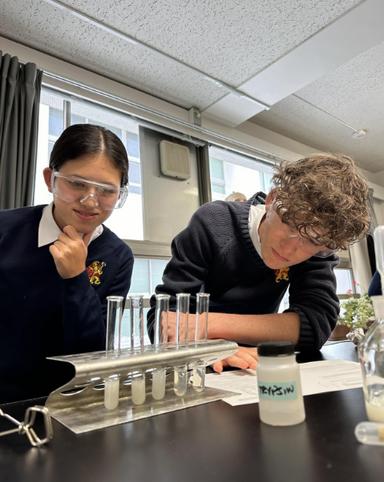
Y11looking ponderous!

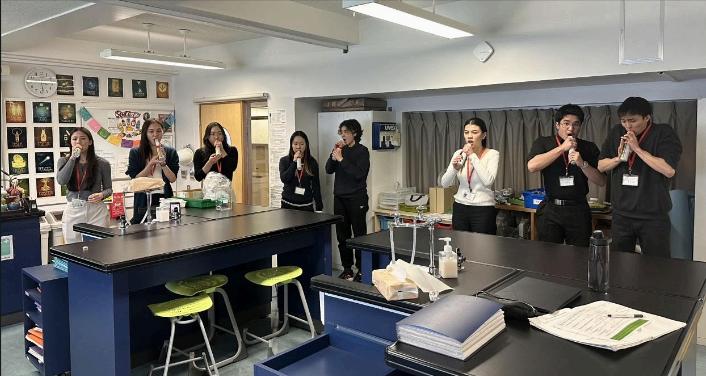

Ms Khan’s Y12 class test their peak flow when looking at gas exchange in humans. Tamotsu came in with a whopping 800 while Ms Khan came in with an embarrassing 350! The the Y12s have flexed their practical skills through out Year 12 especially in dissection of fish gills, pig’s hearts and locusts.


by Enzo Tomaz, Year 12
The history of transgender and gender non-conforming individuals is by no means a recent phenomenon; it is extensive, diverse, and deeply ingrained within many indigenous cultures, particularly among Native Americans in the United States. Native Americans embraced the progressive concept of gender fluidity, opting to recognise more than four genders to define an individual based not on their biological sex but rather on their character traits and social roles. The term 'Two-Spirit' soon replaced 'berdache', serving as an umbrella term to encompass Native American gender identities that do not conform to a rigid gender binary. 'Two-Spirit' also includes transgender members of the indigenous community, revealing to Western culture that transgender individuals have been part of humanity for centuries, if not longer. These communities were free from the discrimination and stigma that currently plague the transgender community in parts of American society, casting a long shadow over their experience.
To explore the motivations behind the bans on gender-affirming care, it is crucial first to understand the process of transitioning for adolescents and the questions it has raised. Gender- affirming care, as defined by the World Health Organisation, encompasses a range of social, psychological, behavioural, and medical interventions designed to support and affirm an individual's gender identity when it conflicts with the gender assigned to them at birth (Boyle, 2022). The process begins with comprehensive psychotherapy to diagnose the adolescent with gender dysphoria, a mental disorder listed in the Diagnostic and Statistical Manual of Mental Disorders. Subsequently, depending on the adolescent's age and stage of puberty, either puberty blockers or hormone therapy are administered. However, in most cases, it is the former followed by the latter. Puberty blockers slow down the development of secondary sex characteristics, while hormone therapy is typically reserved for older youths to enhance the level of oestrogen or testosterone. Hormone therapy enables adolescents to develop sex characteristics that align more closely with their gender identity.

The biological process of transitioning, its potentially irreversible side effects, and the fearmongering of a select few politicians and public figures who spread misinformation regarding gender-affirming care have fuelled the fire of anti-trans bills. One notorious example of this misinformation spreading through American politics was the closure of Vanderbilt University Medical Center's gender-affirming surgery and care in Nashville, Tennessee. Matt Walsh, a far-right-wing political commentator who vehemently opposes trans rights, went on a Twitter rampage denouncing the genderaffirming procedures at Vanderbilt. He claimed that they "chemically castrate and perform double mastectomies on minors" (Witt, 2023). Walsh even included a heavily edited video clip of Vanderbilt's medical director, Shayne Taylor, where Taylor referred to genderaffirming surgeries as money-makers for the hospital. This portrayal painted Taylor as a villain who mutilates children for profit. However, what many failed to recognise was that Taylor's statements were mainly about adults, and Vanderbilt rarely performed genital surgeries on minors. The hospital only conducted an average of five top surgeries per year on minors, with a minimum age requirement of sixteen. Whether intentional or not, Walsh's scathing criticism prompted over sixty Republican state legislators to sign a letter to Vanderbilt, labelling the clinic's practices as child abuse and demanding an investigation. On July 1, 2023, only a few months after the closure of Vanderbilt, Tennessee issued a state law banning gender-affirming care for all minors. Through misinformation and exaggeration, a select few lawmakers believe that transitioning is a form of child abuse, distorting the policy debate.
It is widely acknowledged and extensively researched that hormone therapies can result in irreversible physical changes. Moreover, transitioning carries the potential for a glaring harmful effect: infertility. Many politicians have strongly expressed their concerns regarding the ability of teenagers to make life-altering decisions that may have lasting and potentially harmful consequences for their physical and mental well-being. Chloe Cole, a nineteen-year-old who identifies as a "former trans kid", decided to de-transition to female at the age of sixteen. She stated in a rally to "End Child Mutilation" that she "was allowed to make an adult decision as a traumatised fifteen-year-old", also previously commenting in an interview that the "general specialist I was taken to see told my parents that I needed to be put on puberty-blocking drugs right away" (Cole, C., 2023). Cole heavily regrets transitioning and is now campaigning in many states whilst spreading her cautionary tale to anyone who will hear. It is important to note that Cole did not receive appropriate professional care from a reputable clinic, as otherwise, she may not have pursued transitioning in the first place. Cole's situation serves as a prominent example where the crucial step of intensive psychotherapy, which is necessary before irreversible procedures like surgery are undertaken, did not take place. While Cole's case was indeed an injustice, it is essential to acknowledge that many conservative lawmakers are missing the broader context by simply weaponising her experience to justify enacting bans despite her case representing a minority among the numerous successful transitioning stories. Although shocking, these cases expose the underlying, primary motivation behind the laws restricting genderaffirming care: demagogic misconceptions.

In a recent statement, Dr. Madeline Deutsch, the president of the United States Professional Association for Transgender Health, posed an interesting question in response to Cole's case. "Why are we indicting the treatment of trans youth rather than saying: What infrastructure needs to be in place to ensure that trans kids are properly evaluated?" (Astor, M., 2023). It is, therefore, a disillusioning sight to see the ignorance demonstrated by certain policymakers in the face of this question. Their motivation is clear: banning gender-affirming care will eliminate all potential physical and mental strifes in adolescents, therefore preventing cases like Cole's. However, this sentiment has been grossly inflated and used like a dagger to the rights of all the genuinely satisfied transgender youth in America and those who are desperately seeking treatment. In the words of Dr Deutsch, "This is like saying: We have unlicensed drivers on the road, so we need to basically get rid of automobiles" (Astor, M., 2023).
The benefits that genderaffirming care has had on the hundreds of thousands of trans youths have been indelible. Adolescents who have transitioned have reported a decrease in suicide ideation, depression, and anxiety, as well as an easing of the mental pain caused by their gender dysphoria. These benefits exceedingly outweigh the potential physical ailments many ill- advised politicians have magnified. Perhaps, as a recent scholarly article (Shandley, M., 2020) advocates, Western society could benefit from the Native understandings of gender as more fluid and not strictly binary. Norman Spack, a pioneering paediatric endocrinologist who established the first transgender clinic in the US, voiced the dire consequences that inaction will have on all transgender youth in America: "The risks of not doing anything for them not only puts all of them at risk of losing their lives to suicide, but it also says something about whether we are a truly inclusive society" (Norman Spack, 2013).


By Tessa Poland, Y12

Mariko Oi
BBC Reporter / Presenter
Based in Singapore, Mariko is the first Japanese reporter for BBC News. She covers news stories from around the world and presents Asia’s morning news programmes ‘Newsday’ and ‘Business Today’.
Q: What initially sparked your interest in pursuing a career as a news presenter?
When I was 16, I moved to Australia to study English. Until then, my dream was to find a rich husband and become a stay-at-home mother! But my host mother in Australia asked me what I’d do if my future husband cheated on me. That’s when I started thinking about having my own career.
My mother and grandmothers were stay-at-home mums but my Australian host mother also showed me that it was possible to have a career whilst raising children. Because I had no friends when I first moved to Australia, I was watching TV to get used to English and that’s when I came across a BBC documentary Its powerful footage really moved me, and it also made me feel ashamed of how little I knew of current affairs
That was when I decided that I wanted to become a TV journalist – to tell the stories of the world using the power of pictures. I’ve started presenting in the studio and from the field since joining the BBC but that was not my initial goal. I am a journalist who happens to be in the studio or wherever I’m reporting from.
Q: Can you share a pivotal moment or experience that solidified your decision to become a news presenter?
After the above moment in Australia, I never looked back. Throughout university, all I did in my spare time was make programmes for a community TV channel, writing articles to get them published, and doing work experience.
Q: What do you find most fulfilling about working in the fastpaced world of news broadcasting?
I love breaking news – the process of gathering information, verifying it, all the while trying to tell our audiences accurate balanced stories excites me. I also love making in-depth documentaries because it allows me to dive into one topic. There are several pet subjects of mine and Japan’s Womenomics policy is one of them. By reporting about it, I hope to make a difference – no matter how small – so we leave the world a better place for our children.
Q: What challenges have you faced in your career as a news presenter, and how have you overcome them?
English isn’t my first language so I always had an inferiority complex that I would never be able to write as beautifully as my colleagues who are native speakers But during the 2011 earthquake and tsunami in Japan , I felt I could add value because of my language skills and background I like telling stories from anywhere but as I got older, I’ve realised that my passion is to tell stories about Japan
Q: How do you balance the demands of your professional life as a news presenter with your personal life?
I am fortunate to live in Singapore where we’re able to hire a domestic helper who lives with us. When the children were younger, I also got a lot of help from my parents and my friends when I got deployed to cover breaking news stories abroad. It feels like I have a switch inside my brain to go from the work mode to the mummy mode!
Q: Can you describe a particularly memorable or impactful story you've covered during your time as a news presenter?
I loved covering the Tokyo Olympics, Heisei Emperor’s abdication and Reiwa Emperor’s enthronement because of my passion to tell stories about Japan. Every story is different so it’s difficult to pick one. The Trump-Kim summits were fascinating while witnessing how Hong Kong has changed since I covered the pro-democracy protests has been worrying. Covering natural disasters is always difficult – both physically and mentally – but I found the Christchurch mosque shooting particularly challenging because one of the victims was my son’s age.
Q: What skills do you think are essential for success in the field of a news presenter?
The job is not as glamourous as many think – so you need to be able to work odd hours like a 3am start. You also need to be able to go on air with several minutes notice if you’re covering breaking news. But most importantly, you must pursue the truth and hold the powerful accountable.
Q: What advice would you give to someone considering a career as a news presenter or journalist?
The industry is changing rapidly. Even when I joined 20 years ago, people were saying linear TV was dying. Our audiences can get news much more easily from social media, too. You’d have a big advantage if you can film your own report and edit while also covering the same story for radio and for a website (i.e. writing an online article).
Q: Do you think ChatGPT will have a positive or a negative impact on journalism in the future?
I don’t expect AI to replace journalists as we always try to witness events and gather information first-hand. But I believe AI can be useful in supporting our jobs as a journalist such as transcribing interviews and we are already using it.
Written by Paul Cuvelier, Y12
I’msuremostreadersarealreadysomewhatfamiliarwithEnzo,he didplayastarringroleasTroyBoltoninourproductionofHighSchool Musical,thoughsomethingmanymaynotknowisthefactthatEnzo wasinadifferentproductionoutsideofschoolthatactuallyhappened roughlyaroundthesametime!Recently,Ihadthepleasureof interviewinghimaboutthisproductionandalsotookthetimetoask himforanyadvicetogivetoanyonewho’sinterestedinDramaor acting.I’llcondensehisanswerstomyquestionsbelowintoamore digestibleformat,butyoucanalsofindafulltranscriptofthe interviewhere.
IfirstaskedEnzoabouttheproductionhewasin.Theyweredoing Hamlet,andEnzowasplayingasHoratiowhilealsobeingthe understudyforHamlet(whichmeantthatifHamletcouldn’tgoonfor whateverreason,hewouldhaveto).Hejoinedtherehearsalsaround NovemberandperformedinlateFebruary,sohespentabout4 monthsinarehearsalprocesshedescribedas“intense,butvery enlightening”.
Now,youmayhavenoticedthatthisshowwasawfullyclosetotheBST musical,andInoticedthataswell,sonext,Iaskedhimabouthowhe managedtobalancepreparingforbothshows.Funnilyenough,Enzo didn’treallyseeitasachallenge,he“sawitasagift”.Yousee,Hamlet isaheavy3hourmonsterofaplay,being“oneofShakespeare’smost difficultplaystograsp”,whileHighSchoolMusicalisanythingbutthat, whichallowedhimtonotgetoverlytiredofeachplay.
“WhenthingsweregettingtoocheesyinHighSchoolMusical,I’dstart thinkingaboutHamlet,whenthingsweregettingtoodarkinHamletI startedthinkingaboutHighSchoolMusical,theybalancedeachother out.”

Itwasalsoagreatopportunitytopractisesomethingmanyactors enduphavingtodo:jugglingroles.Afterall,thesetworolescouldnot bemoredifferent,one’ssillyandgoofyandtheother’sdarkand serious.“Gettingtogripswithatfirsttheoverwhelmingprocessof tryingtogetintotheheadsetofbothcharacters,andthenreally easingintoitandseeingthebeautyofit”.

Thisallsoundsgreatright?WellatthispointIwaswonderinghow Enzomanagedtogetsuchanamazingopportunitytohavethesetwo rolescoinciding.Heveryhumblydescribedhisstoryas“notvery glamorous”,withitboilingdowntoessentiallyjust“Ifoundthemfor WorkExperience”,butitgoesalittledeeperthanthat.Enzoactually missedtheauditionsfortheplay,butendedupsendingemailafter emailtothedirectorinanattempttosecuresomekindofinternship. Eventually,whenhesenthimavideoofaHamletmonologueEnzodid fortheKPASSspeechcompetition,theyendeduptalking.Couple weekslater,hegetsthepart.Now,Iwillsay,IthinkEnzoisselling himselfalittleshorthere,ittakesgreatcourageanddeterminationto reachoutlikethatandsellyourselftoadirector.
ThatbringsmeontothelastthingIaskedabout:theadvicehewould givetoanyofyouwholoveDrama.Hefirstsaid“Justgoforit.”,don’t hesitate,don’tgetcaughtupinindecision“ifyouloveactingjustas muchasyousayyoudo,itcanalmostneverbeabadexperience.”. Thisalsoappliestoanyone,notjustactors.It’simportanttoseize opportunitieswhenyouseethemandnotletthemjustwashoveryou, that’sthefirststepofsuccess,afterall,youwon’tfindsuccesswithout eventryingwillyou?EvenEnzostruggledwiththisalittle,headmits thatheusedthepandemicas“anexcusetonotexploretheatrein Tokyo”,evenwhenlockdownended,he“justwasn’tlooking”for opportunities.Itmaysoundcliche,butjustgoforit.
Healsosaidsomethingelse!Thisismoreforwhenyou’reonstage (andheactuallystolethisfromoneofhisfellowcastmembers), whenyoufeelemotion,justrunwithit.Now,Ididn’treallygetwhat hewassayingatfirst,buthedescribesitlikethis: “Iliketothinkofactinglikeyou’resurfing.Theplayistheoceanand youremotionsineachscenearewaves.Don’tforcewavestocome, you’renotPosiedon,youdon’tcontrolthesea,butwhatyoucan controliswhenawaveofemotiondoescome,youletitcome.And thenyoufeelitandyouridethatwave.” Evenifemotionsdon’tcometoyouduringascene,don’tforcethem. What’simportantisthatyoucreateacompellingandemotionally authenticcharacter.Forcedemotionswillnotdothat.Manynights hewas“exhaustedandwouldn’tfeelanything”,andsoHoratiowas unfeelingsomenightsanddifferenteverynight.Ofcourse,itwasn’t justEnzowhodidthis(heevenconsidershimselfasvery rudimentarycomparedtotheotheractors),anditreallyhelpsto openoptionsforthedirectortotryscenesdifferently.Whenyoufeel theemotioncome,yourunwithit.
Andthatmarkedtheendof ourinterview!Again,ittruly wasapleasuretotalkwith EnzoandIsincerelyhopehis wordshaveinspiredatleast acouplereaderstopursue theirgoalsanddreams further,nomatterwhatthey are.Enjoytherestofthe magazine,andhaveagreat summereverybody!
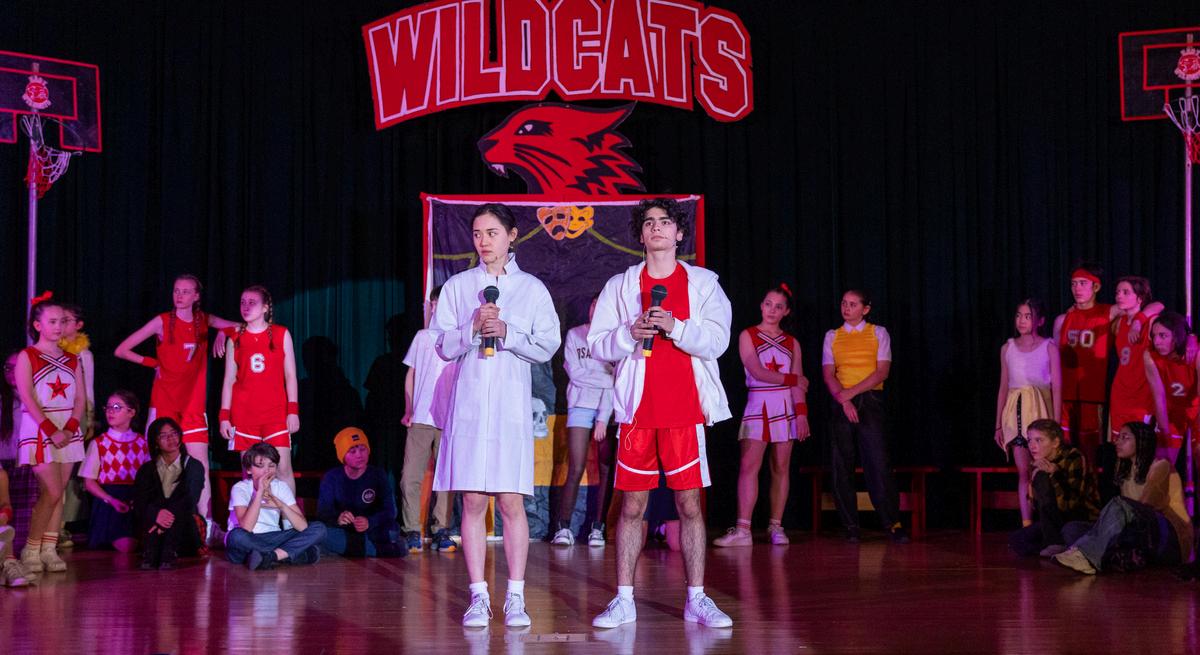


Creating an efficient revision schedule is one of the best methods to stay on top of your revision, especially during Study leave. An efficient revision schedule involves establishing a realistic timeframe. Begin by assigning certain subjects to specific days. This will save you from being overwhelmed when revising and help you to concentrate on one subject at a time. When constructing your schedule, prioritise your weakest subjects and those with the most material to cover. Then you may assign time frames and start creating your timetable. Try to be realistic as there are limitations to how much you can do in one day. It is quite not probable that you will be able to finish five hours of productive revision in a single evening, so set reasonable and achievable goals. This will enhance your productivity while decreasing anxiety and worry.
If you still have difficulty focusing when revising, use a time management method techniques. One example strategy is dividing your revising work into 25-minute 'chunks' with 5minute breaks. This can help with attention, even for seemingly brief periods of time, by decreasing the effects of distractions and establishing a sense of pressure. The top revisers have a balanced work schedule. Begin early, set realistic goals, and reward yourself for your hard effort. If you get frustrated or lose focus, take a pause and rest for a while.

Visual learners absorb materials best by perception. Visual learners take in information through visualisation, which means they acquire and remember knowledge graphically. Visual learners might find the following revising approaches and strategies helpful:
Underline, highlight, and colour code notes
Create graphs, flowcharts, and mind maps to memorise key information
Create and use flashcards
Refer to and review texts which contain diagrams and images
Design storyboards to revise key processes or reconstruct specific events (this is particularly helpful for Science, History, and Geography revision).
If you happen to be an auditory learner, the greatest way to learn is to listen. Auditory learners absorb data by hearing and speaking, therefore they acquire and remember knowledge audibly. Auditory learners may benefit from the following revising approaches and techniques:
Listen to podcasts or online lectures relevant to specific subjects and topics
Memorise key ideas or information mnemonically (use acronyms, rhyme and song)
Read notes and textbooks aloud, you could even record yourself doing so and listen to it at a later time
Teach others: create lesson plans relevant to specific topics and teach your friends and family about them
Verbalise your answers before writing them down when completing past papers.
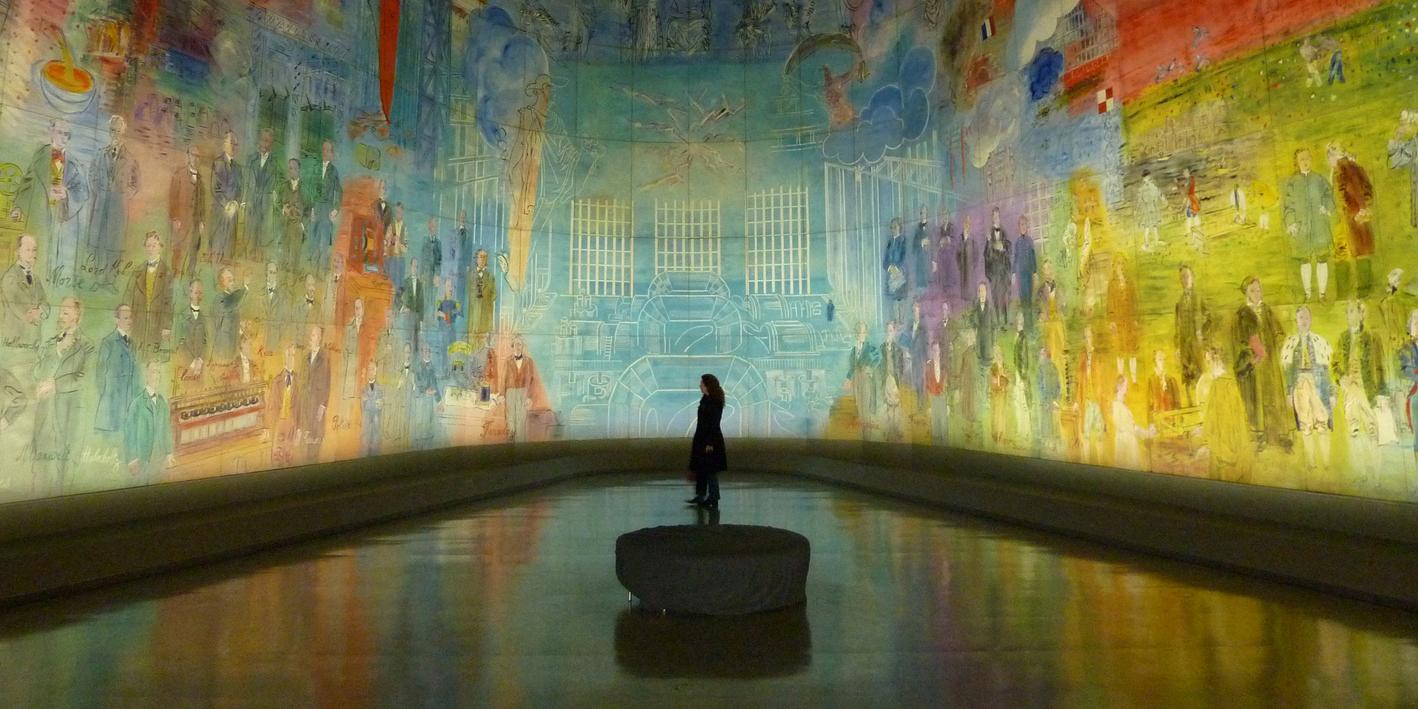
1. Free museums
https://www.timeout.com/tokyo/ museums/best-free-museums-intokyo
Get out of the hot sun and enjoy several museums (which are all for free) in Tokyo with friends or family
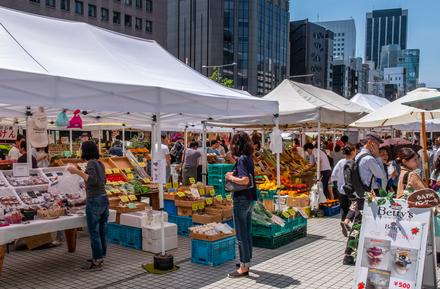

2. Have a picnic in the park https://tokyocheapo.com/enterta inment/outdoors/8recommended-picnic-spots-intokyo/
Spend some time outdoors with friends and family whilst eating good food

3. Go hiking
https://tokyocheapo.com/e ntertainment/outdoors/tok yo-hiking-trails/ Japan is known their mountains and hiking up those mountains is a great way to get away from the sweltering heat as well as getting some exercise in
4. Go to a Farmer's Market https://www.timeout.com/tokyo/shopping/farmers-market-at-unu
Contrasting to the metropolitan atmosphere of Tokyo, you can visit a farmer's market right in the heart of the city and find authentic and unusual trinkets and food all for an affordable price
5. Festivals
https://jw-webmagazine.com/best-summer-festivals-intokyo-2bf3bb26d437/
If you want to experience more of Japan's culture, festivals are a great way to do so. With the Japanese summer festivals known for its food, dancing and celebrations, it is a great chance to mingle with other people in your community and learn new things about Japanese culture.
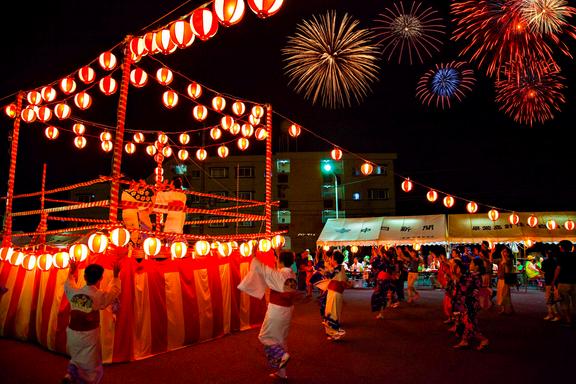


UP NOW!!! C L U B O P P O R T U N I T I E S

WRITING AMBASSADOR MEETINGS ARE ON FRIDAY LUNCHTIME WE LOOK FORWARD TO SEEING YOU THERE!

WRITING AMBASSADORS ARE INVOLVED IN CREATING THE STUDENT MAGAZINE EVERY TERM WORKING IN COLLABORATION WITH THE LIBRARY AMBASSADORS
PROMOTING CREATIVE WRITING COMPETITIONS. SUPPORTING THE WEDNESDAY LUNCHTIME WRITING DROP-IN SESSIONS.



SofuntotalktoandmakesPElessonsfunfor everyone.Alwayssmilingandhasaverypositive aura.
Sheisaverykindandenergeticteacherthatalwayshelpsuswhen strugglingduringPE.Shewasalsooneofthecoachesforhighschoolgirls basketballandwasteachingushowtoimproveinbasketballlikecallingfor theballandscreening.Whenevershewasaroundshealwaysmadesure thateveryonewashavingagreattime.
Shealways mademe feelbetterin basketball

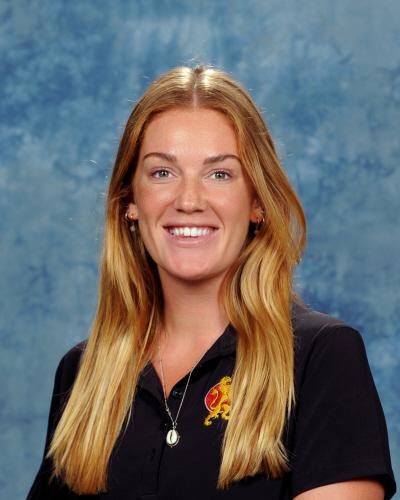
Sheisnot only supportive butkindand generous!She makesPEthe bestlessonof thedayandis very energeticand funny!

IhavechoseMslynnbecausesheisareallygoodPEteacherandsheisreally funny. Alwayshasasmileonherface,andnomatterwhat’shappening,sheis alwayssocheerytoallthestudents.Walkingsunshine.
MsKhanissokindandhasreallyhelpedme understandsciencewellthisyear,her explanationsarealwaysclear,andsheisalways willingtohelpuswhenweareconfused.Wehope youfindMorticiasoonMsKhan!
Mskhanisa reallynice teacher.She alwaysmakes melaughand smile!


Incredible teacherand actually caresabout mylearning.

MsKhanisanamazingteacher,andIalwayslookforwardtoherBiologylessons.Ilove talkingtoMsKhaneachlesson,andamsothankfulforalltheworksheputsinforourGCSE class.We'llallmissMsKhansomuchwhensheleavestheschoolnextyear.Thankyou!
Shemakesthelessonsreallyengagingandshealwaysasksforour opinion.
IchoseMrsMcCannbecausesheisvery kindandcaresforeveryone.Shehasworked sohardinthemusicalanditwasagreat success!Themusicalwouldnotbethe samewithoutMrsMcCannandI'msohappy shewasoneofthedirectors.
MrsMcCannhelped incrediblythistermby managingthe costumesfortheHigh SchoolMusicalby buyingthecountless numberofcostumes &washingthem. WithoutMiss McCann's organisation,we wouldn'thavehad suchaglamourous show!

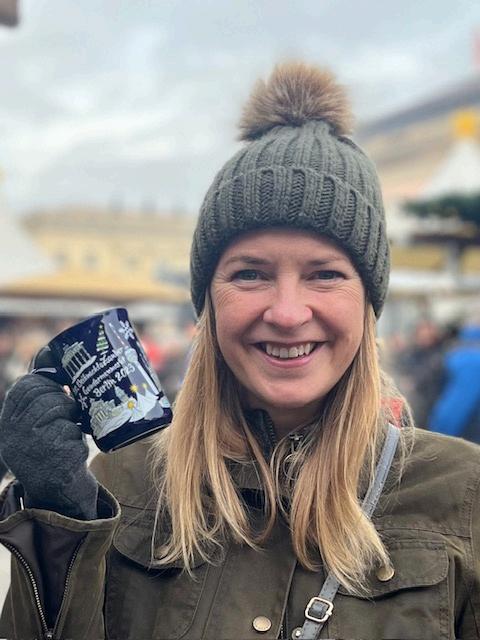
Brilliantdirection andcostumesfor themusical
IalsochoseMrs. McCann because althoughshe doesn'tteach meindrama, shehelpedusin themusicaland madeallofour costumes.She hasgaveusall ofhersupport, commitment andkindnessto helpusachieve thecreationof theshow.

WheneverIseeMs.McCann,shealwaysseemstobesmiling.Afriendlyfaceinthehallways,she neverceasestomakemesmiletoo.Iknowthatshehasbeenanimperativesecond-in-chargefor themusical,andsoIamverygratefulforeverythingthatshehasdone Asshewillbeworkingnowin thesecondaryschool,takingonpartofMs Sheffield'srole,IknowthatMs McCannwillbeabright faceinthecorridorsofBST!(Andhasbeeninherlimitedtimeherealready!)

EDITED BY:
ACKNOWLEDGEMENTS:
SUBJECT AMBASSADORS/TEACHERS
THE STUDENTS WHO SUBMITTED THEIR NOMINATIONS FOR 'TEACHER OF THE TERM' AND ‘HIGHLIGHT OF THE YEAR’



